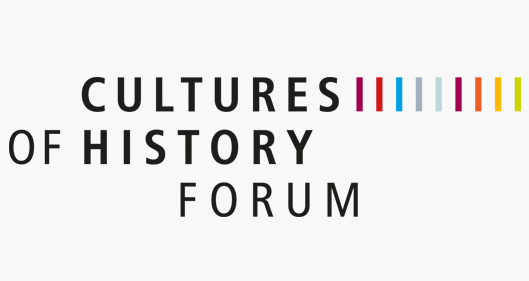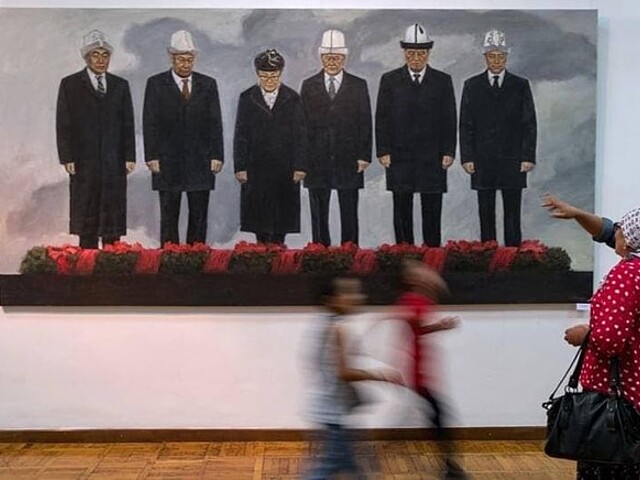
Gero Fedtke and Ivan Fukalov · 05. Jul 2022
Since gaining independence, Kyrgyzstan has struggled to reconcile its imperial and Soviet history with a post-imperial historical narrative that would be able to unite contemporary Kyrgyz society in a nation-state. No memorial site embodies this more than the Ata-Beyit Memorial Complex near Bishkek. The grave sites and memorials assembled here represent three periods of Kyrgyzstan's 20th century history all at once. The article traces their history and discusses their changing meaning over time.
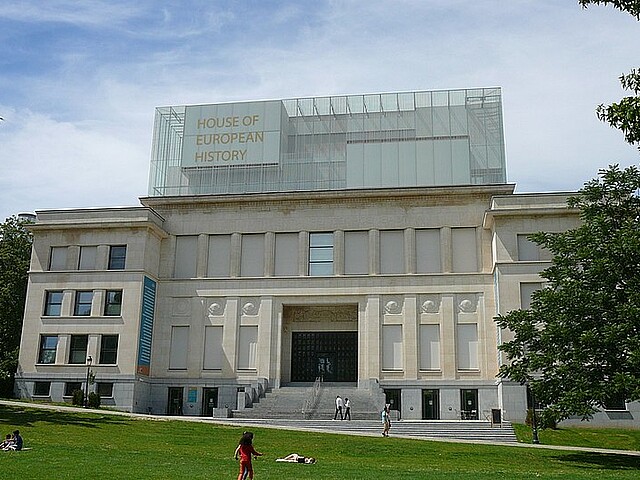
Jakub Jareš · 12. Oct 2017
Plans to create a museum of European history in Brussels have existed ever since 2007. It took ten years of preparation for the House of European History to finally open in the beginning of May 2017. The purpose of the museum is to communicate to the public Europe’s common story, which stands above the 28 national histories, and to be a place for exploring and creating a European identity in the future. Can it successfully achieve its mission?
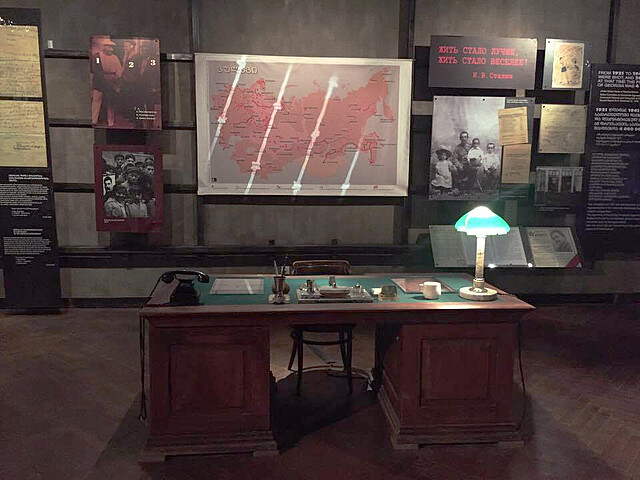
Nutsa Batiashvili · 01. Jun 2017
The Museum of Soviet Occupation in Georgia’s capital Tbilisi, which opened in 2006, is a site of mnemonic contestation where the Soviet past is being displayed in a manner meant to reflect current disputes over politics and memory. This article discusses some of the discourses behind the museum’s current permanent exhibition linking it to Georgia’s geopolitical mission to become European, to mend relations with Russia and overcome internal political friction.
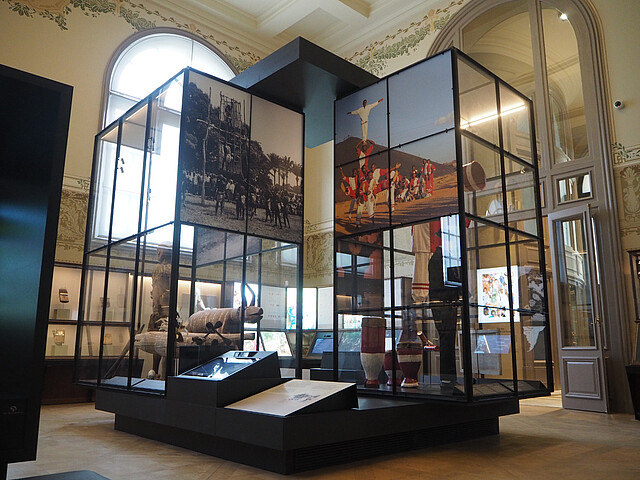
Zofia Wóycicka · 29. Sep 2020
The Royal Museum for Central Afrika in Tervuren, Belgium, has long been seen as a racist institution. Recently it has come out with a new permanent exhibition that aims at a more (self-) critical approach to the colonial past. The article reviews the new exhibition and the criticism against it. In an epilogue it shows the various ways in which the new AfricaMuseum and its exhibit carry valuable lessons also for museums in Central and Eastern Europe.
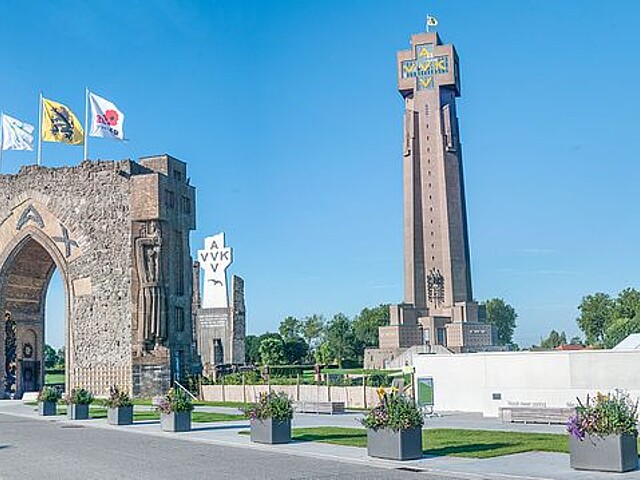
Maarten Van Alstein · 16. Nov 2016
"No more war" is the message the Yser Tower Museum in the small Belgian town of Dixmunde tries to convey. It seems as if this war museum which showcases the atrocities of the First World War at an authentic site would like to be a museum for peace. Yet by opting for a pacifist narrative the museum bypasses the complex history of the site itself. It avoids any in-depth discussion about the controversial history of the Yser Tower and its role in the efforts to construct a Flemish nation.
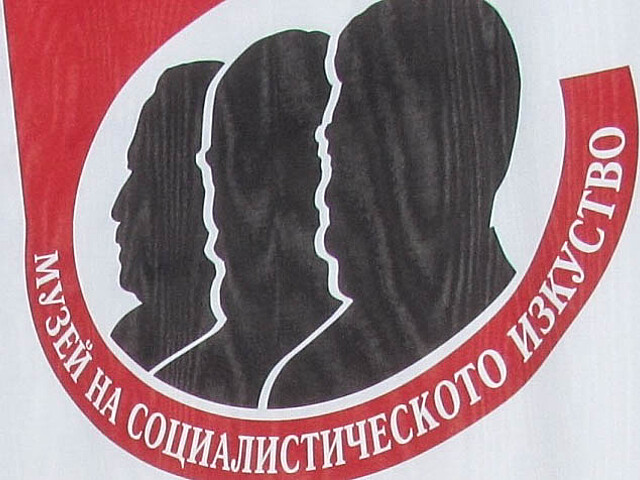
Nikolai Vukov · 05. Dec 2012
The "Museum of Socialist Art" in Sofia is the first state-supported museum focused on the communist period in Bulgaria. Paying attention to debatable issues regarding its concept and structure, the article outlines the anxieties of the Bulgarian public about this museum, particularly regarding the "resurrection" of socialist ideology and the "re-habilitation" of artistic production during communist rule. It shows the lack of clear principles in the selection and arrangement of the exhibited items, and the hesitation to take a critical stance on the former regime.
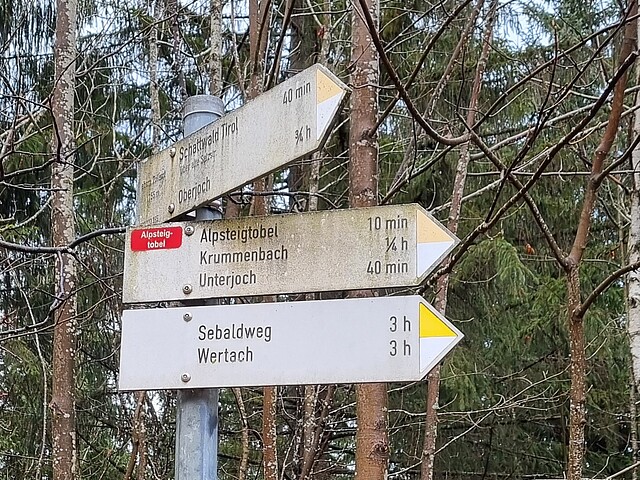
Hans Gutbrod · 30. May 2023
How can we remember writers as both, children of their time and creators of literature that represents collective experiences? The article takes us on a path that is dedicated to the memory of the writer W.G. Sebald and reflects on the multiple and sometimes contingent ways in which landscape and literature, put together, can create unique narratives of remembrance.
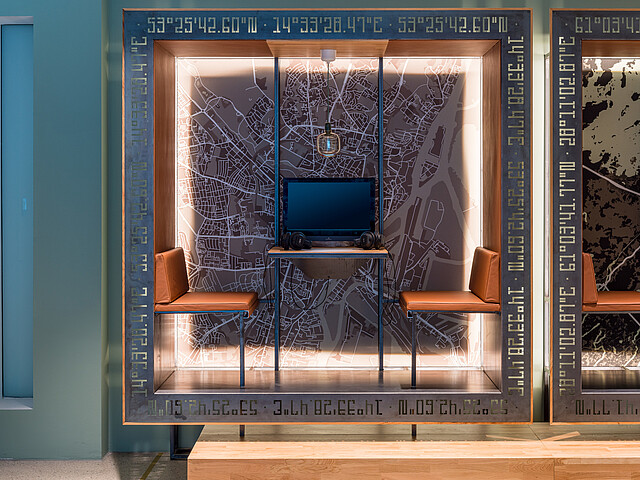
Matěj Spurný · 31. Oct 2021
In June 2021, the much anticipated Documentation Centre for Displacement, Expulsion and Reconciliation opened its doors in Berlin. The article reviews the Centre's permanent exhibition at the Deutschlandhaus, placing it within the preceding controversies and asking to what extent it meets the aim to contextualize the post-war expulsion of Germans within the broader European context of forced migrations.
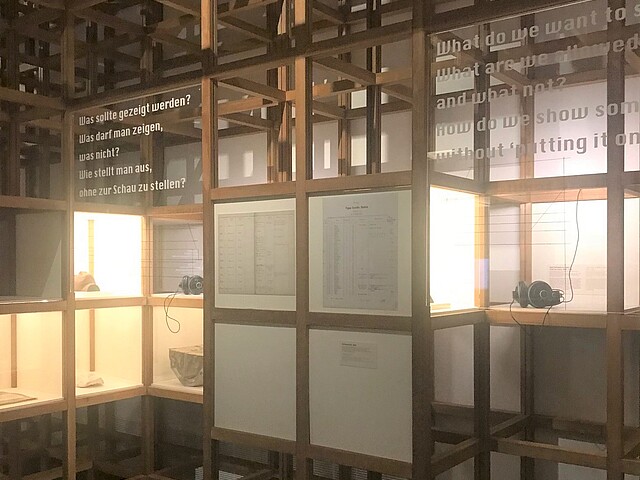
Verena Meier · 04. Mar 2019
Against the backdrop of rampant racism and xenophobia in both public life and the social media, the 'Racism'-exhibition in Dresden came at the right time. It gave interesting insights into how 'race' as a category was invented as well as into the Hygiene Museum's own history in promoting racialized thinking. The article provides a critical review of the exhibition and its uses of media, interventions and other didactic tools in presenting a most sensitive issue.
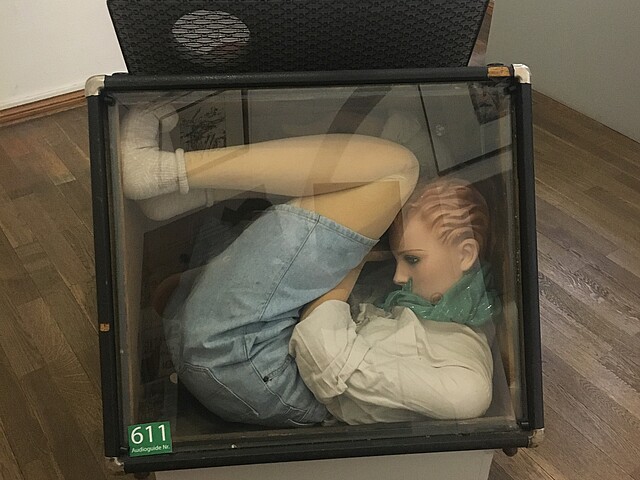
Emily Gioielli · 29. Apr 2018
How are women who lived in and escaped from the GDR represented in two of the most popular tourist sites in Berlin: the Checkpoint Charlie Museum and the Tränenpalast? In comparing both exhibitions from a gender perspective, the article highlights different modes and key differences in how these two Wall museums address issues of gendered experiences, motivations and agency in stories of resistance and escape.
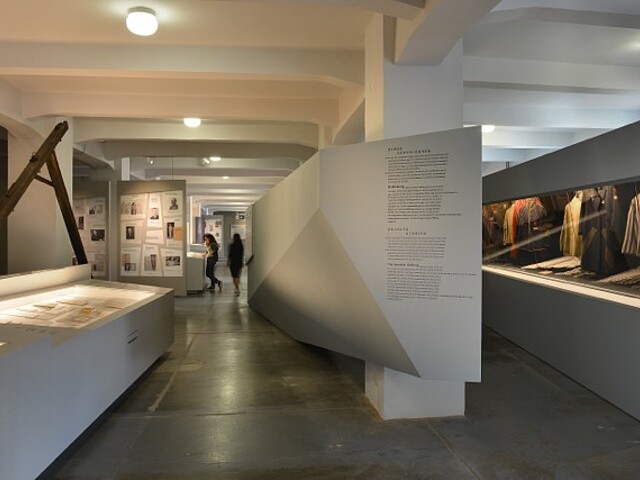
Zofia Wóycicka · 08. Feb 2018
In spring 2016, a new permanent exhibition opened at the Buchenwald Memorial near Weimar. The article provides a critical review of the exhibition against the backdrop of previous exhibitions: the first which was opened by the GDR regime in 1954 and the second one after re-unification in 1995. Compared to these, the new exhibition appears less raw and more aestetic in appearance. Moreover, it engages more than its predecessors with stories of perpetrators in addition to those of the victims.
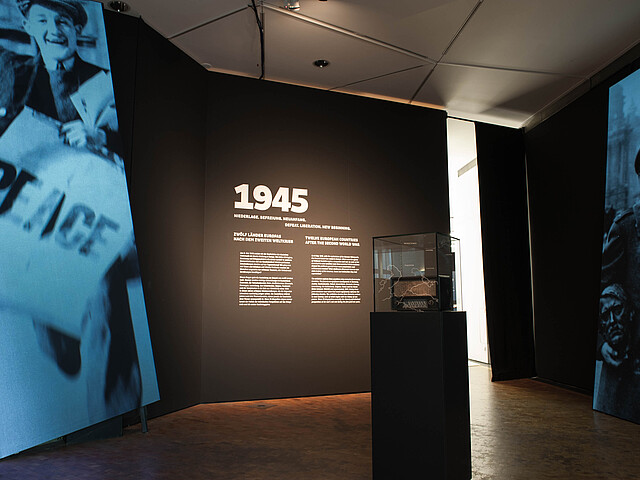
Daniel Logemann · 25. Oct 2015
The article critiques a recently opened temporary exhibition about Europe’s post-war history at the German Historical Museum (DHM). While the exhibition treats all major themes of the war's end with political and historical correctness, it poses no guiding questions for visitors; neither does provide comparative perspectives. Therefore, it ultimately fails to rise above mere eclecticism. Overall the DHM fails in its attempt to grasp European history as a zone of interconnections rather than of parallel strands.
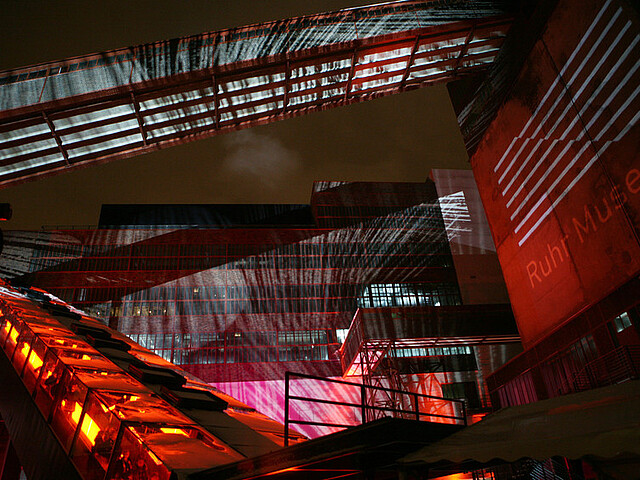
Ulrich Borsdorf · 05. Jun 2014
The identity of Germany’s Ruhr area has been shaped by industrialisation, which transformed the former rural landscape and small towns into a centre of the industrial revolution on the continent. However, the history of civilization in the Ruhr stretches back to the early middle ages. All this is examined at the Ruhr Museum Essen, including the preconditions for and the serious consequences of industrialisation in in terms of the environment, as well as the long and largely unknown history of the Ruhr area before industrial times.
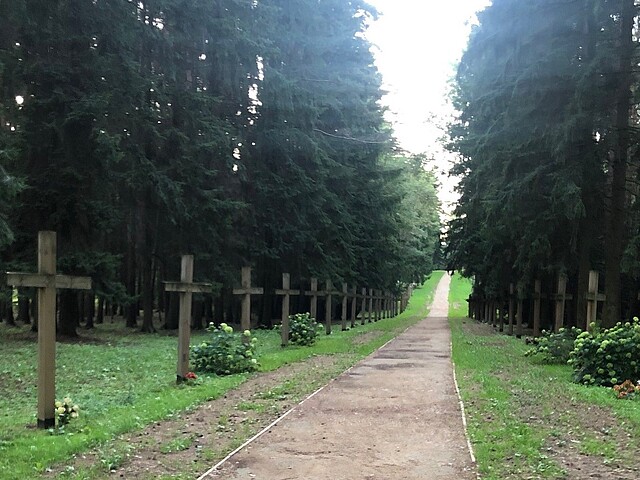
Nelly Bekus · 27. Sep 2019
Kurapaty, the site of Stalin-era mass executions on the outskirts of Minsk, has long been a much contested space where memories and narratives of the Soviet past clashed. Against the backdrop of a national government that blocks any more critical engagement with the Soviet history of mass crimes, the article explores the way in which Kurapaty has been the birth place of various oppositional groups and memory activists who pursue rather different mnemonic agendas.
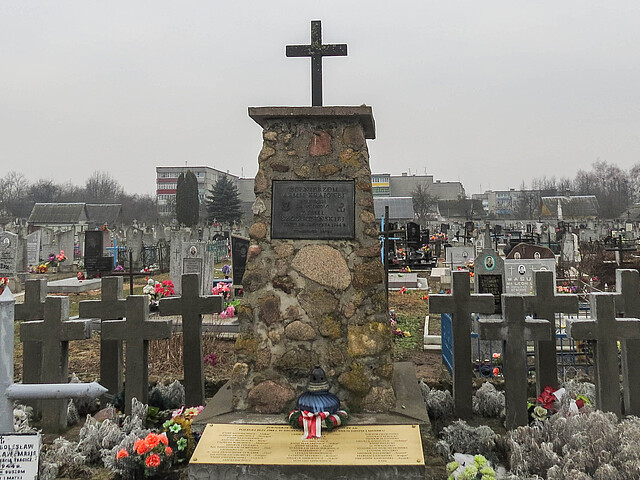
Iryna Kashtalian · 11. Mar 2015
This article examines recent efforts by the Union of Poles in Belarus (ZPB) to preserve the memory of the Polish Home Army, an underground organisation of the Second World War, which also operated in areas that had been incorporated into the USSR in September 1939 and therefore belong to today’s Belarus. Particular emphasis is placed on analysing how the current political regime in Belarus has influenced the activists’ situation and efforts on the ground.
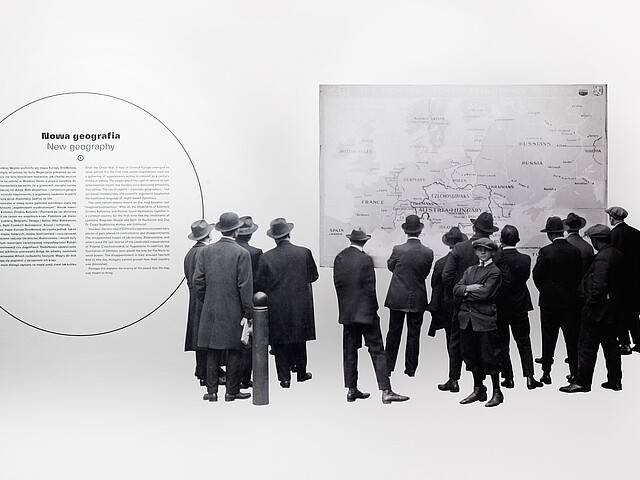
Maciej Czerwiński · 11. Apr 2019
How were processes of nation state-building and modernization reflected in early 20th century architecture? This and other questions guided a recent exhibition at the International Cultural Centre in Krákow. In tracing the 'language of architecture' across the region, the exhibit provided an interesting and original contribution to understanding the fundamental changes that marked the beginning of modern Europe.
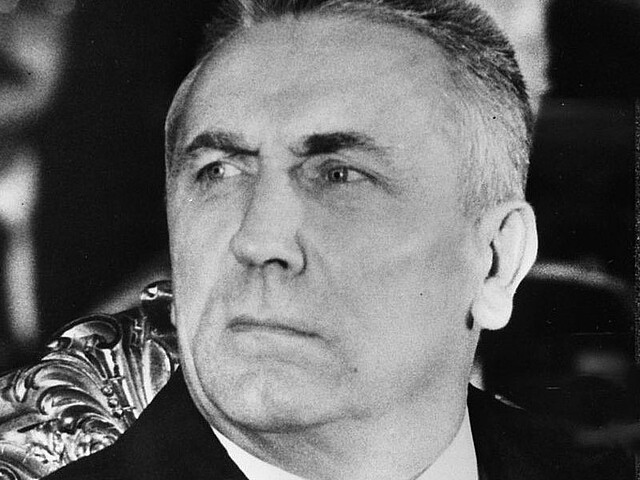
Valentin Behr · 03. Sep 2018
Since 2015 when the Law and Justice (PiS) party returned to power, ‘history policy’ has become an important part of the political agenda in Poland. Its main targets are museums and public education more broadly. The article reviews a recent temporary exhibition about former Polish Communist Party leader Edward Gierek in the small town of Sosnowiec and places it in the wider discourses on de-communization and on regional-vs-centralized historical narratives of the recent past.
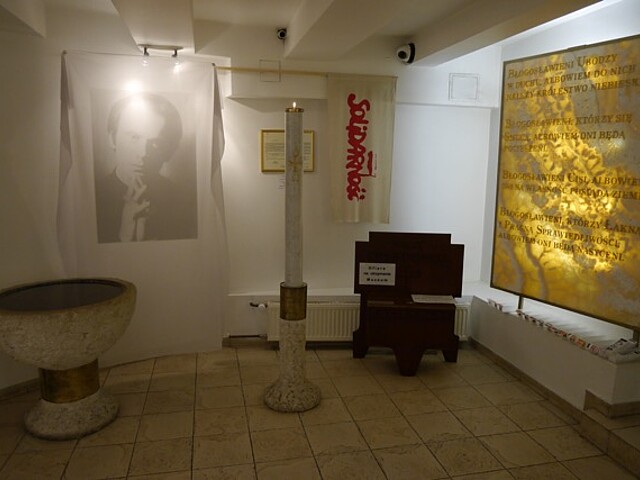
Zuzanna Bogumił · 12. Jan 2018
What happens when the Church engages in public negotiations of history by hosting and funding a museum? “The Blessed Jerzy Popiełuszko Museum in Warsaw” poses this question as it is located in a church and presents the life of Jerzy Popiełuszko, a Catholic priest who fought against the communist regime and was murdered in 1984. Today he is perceived both as a national hero and a Catholic martyr. The article critically reviews the current exhibition and how it combines questions of history and religion.
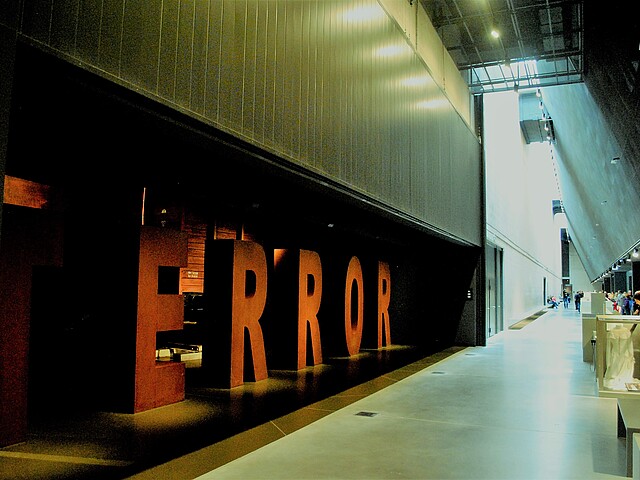
Andrzej Hoja · 24. Jul 2017
In recent years, no other museum exhibition in Poland has been disputed to a similar extent as the one in the Museum of the Second World War in Gdańsk. The dispute seemingly concerned the main storyline of the exhibition but, in fact, it had little to do with history and more with current Polish politics. The article takes a sober look at the exhibition and analyses the extent to which it goes beyond merely presenting a selection of historical issues and allows visitors to experience history in different ways.
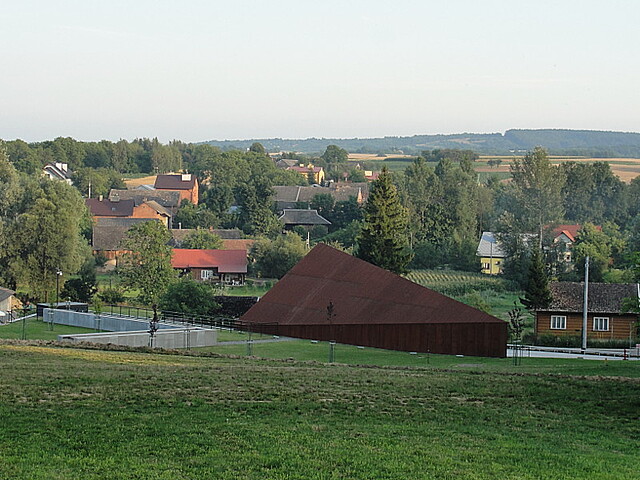
Florian Peters · 08. Dec 2016
A small but state-of-the-art museum in the countryside of Poland’s southeast opened its doors in 2016 to commemorate Józef and Wiktoria Ulma, who shielded two Jewish families in their cottage. The twofold dedication of this museum, both to the Ulma family and to "Poles Saving Jews in World War II" opens up a window to understand 'big history' in the framework of the small. However, this approach also carries some risks.
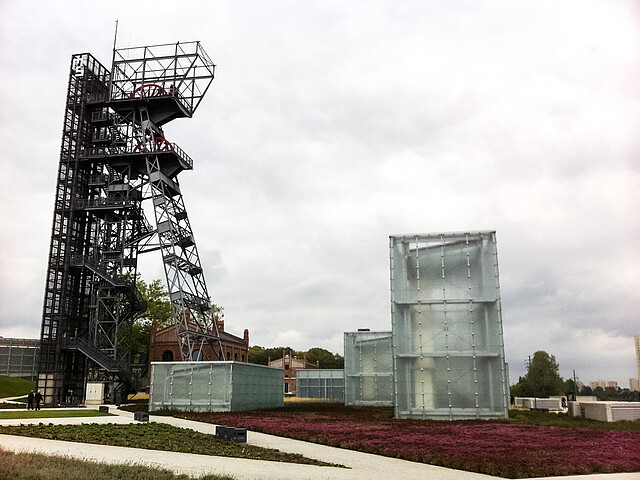
Juliane Tomann · 01. Mar 2016
The Silesian Museum opened in 2015 in a former coal mine in Katowice. The new permanent exhibition is the first attempt to exhibit the history of Upper Silesia, one of Poland’s most contested regions. The turbulent background regarding the development of the exhibition offers insights into the continuing processes of self-discovery in a post-industrial Upper Silesia in search of its place within contemporary Poland.
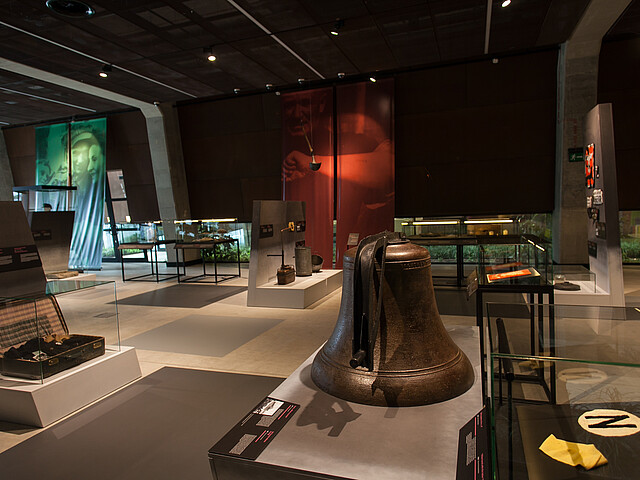
Anna Muller · 16. Nov 2015
While the Museum of the Second World War in Gdańsk was still awaiting the opening of its final location, its staff prepared an exhibition that in 45 artefacts tells the story (or perhaps, stories) of the difficult process of transitioning out of war. The artefacts not only speak to us about the chaos and destruction that defined post-war life, but also about the daily practices that helped people create the intervals of peace necessary to maintain their sanity in the midst of destruction.
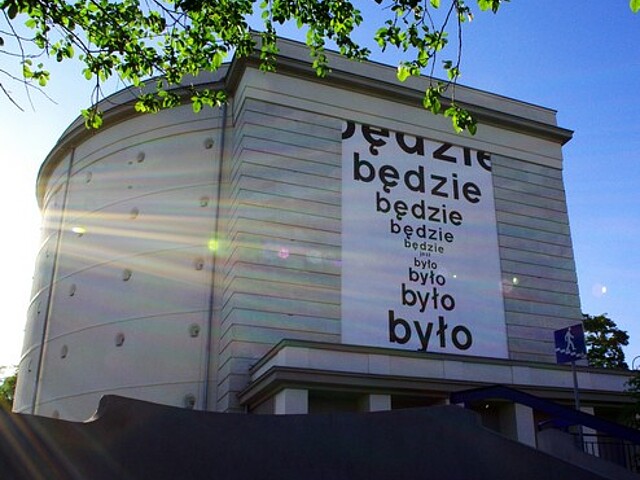
Jakub Zarzycki · 25. Oct 2015
The new exhibition at Wrocław’s Contemporary Museum collected around thirty works centred on the formation of a Vratislavian identity following World War II. According to the organisers, the exhibition's title - The Germans Did Not Come - reflects the fear among the population of Wrocław at the time that the city might fall back into German hands - a fear that also provides a read line throughout this exhibition.
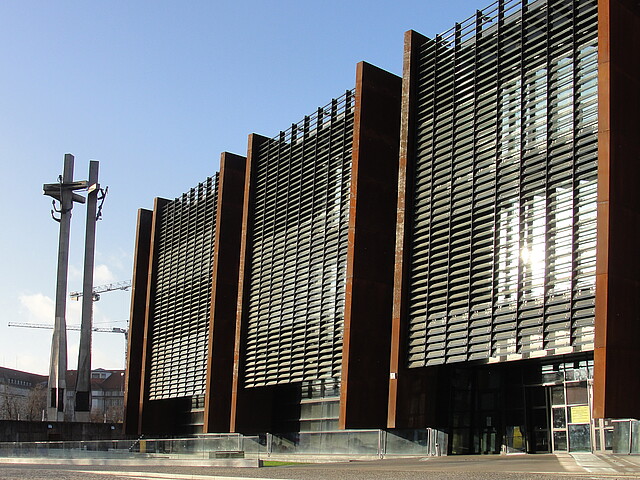
Florian Peters · 12. May 2015
The European Solidarity Center, which opened its doors in Gdańsk in August 2014, is one of several new museum projects in recent Poland. Maybe this is why the museum’s founders emphasize the distinguishing characteristics of their institution. The center has two ambitious aims: to present exhibits on the history of Poland’s Solidarity movement as well as on the present-day meaning of solidarity as a social value. Does it achieve its own aims?
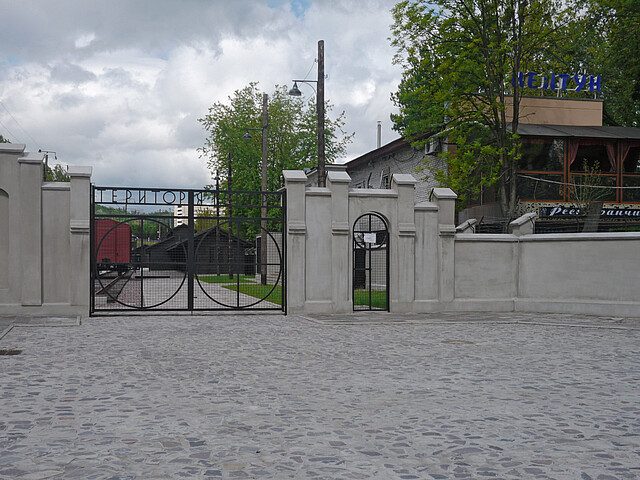
Alexandra Wachter and Ekaterina Shapiro-Obermair · 07. Mar 2017
This article discusses the new memorial site “Territory of Terror” in L’viv. It explores the ways in which the creators have tried to produce ‘new’ narratives of Western Ukrainian history by initiating museums at original sites of terror and violence committed during the Second World War and in its aftermath. It also places the exhibition in a wider context of similar sites in the area and discusses current memorialization processes more broadly regarding Soviet history in Ukraine.
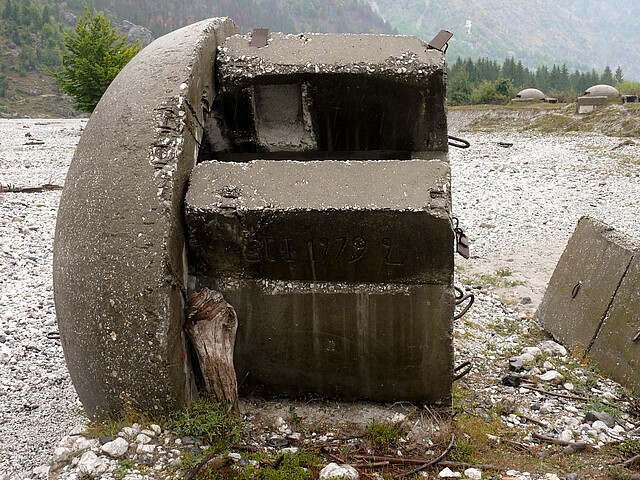
Idrit Idrizi · 27. Apr 2021
More than thirty years after the end of the Hoxha regime, the communist period is still subject of heated public debates in Albania - debates that frequently degenerate into personal attacks and insults. The article traces the origins of the strong polarization in the public discourse to the communist repressive tool of 'family liability' and to an insufficient and heavily instrumentalized post-communist process of transitional justice.
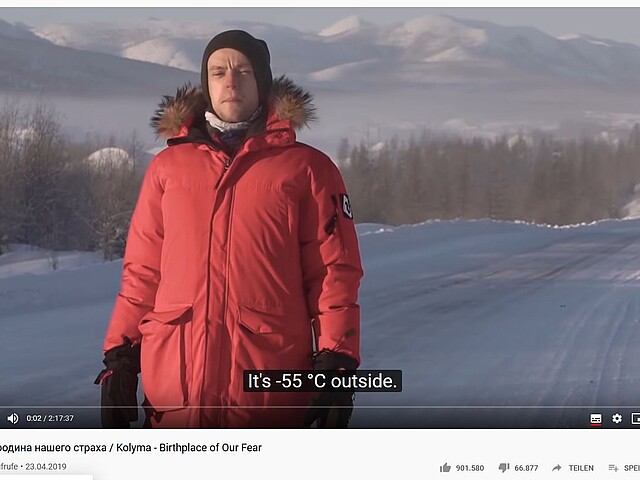
Anna Schor-Tschudnowskaja · 29. Apr 2020
A year ago, the documentary film 'Kolyma – Birthplace of Our Fear' was uploaded to YouTube. Made by the blogger Yury Dud, it has received over 20 million views today, despite the fact that it addresses one of the darkest chapters of recent history in Russia - the Gulag. The article analyses the film and its popular appeal, not least among young audiences. It identifies three key phenomena of present-day Russia that the documentary addresses: fear, ambivalent attitudes towards Stalin and an ahistorical form of patriotism.
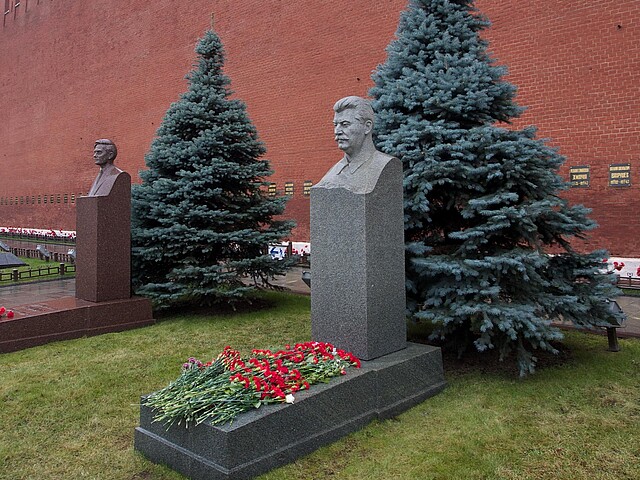
Ekaterina Makhotina · 23. Jan 2018
What is really behind the growing popularity of Stalin in contemporary Russia? The article discusses different expressions of what has been termed a new “Stalin cult” or “Stalin renaissance” in Russian public and political discourse today, despite widespread knowledge and official acknowledgment of Stalinist mass crimes. It argues that short of constituting a rehabilitation of Stalinism, this phenomenon primarily reflects on people’s desire for stability and order.
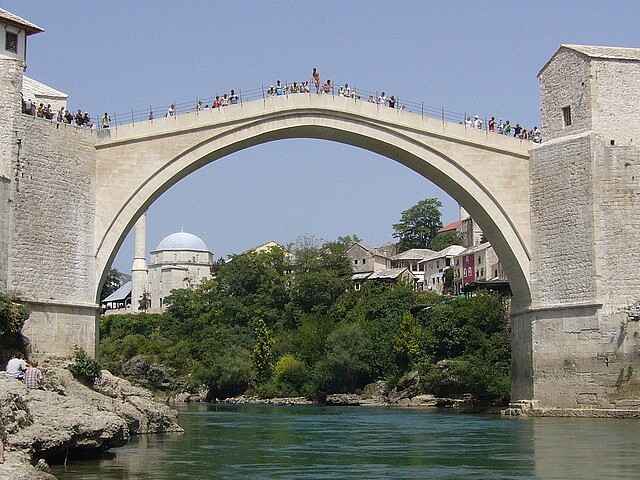
Nicolas Moll · 12. Apr 2015
The article gives an overview of the fragmented historical culture in Bosnia and Herzegovina, twenty years after the end of the war, which left the country deeply divided along political and ethnic lines. Parallel ethnonational narratives about the past, both recent and distant, are dominating the public sphere. Yet, the memory landscape in the country should not be reduced to its ethnonational divisions: variations within the dominating narratives and a wide range of attitudes towards them also exist.
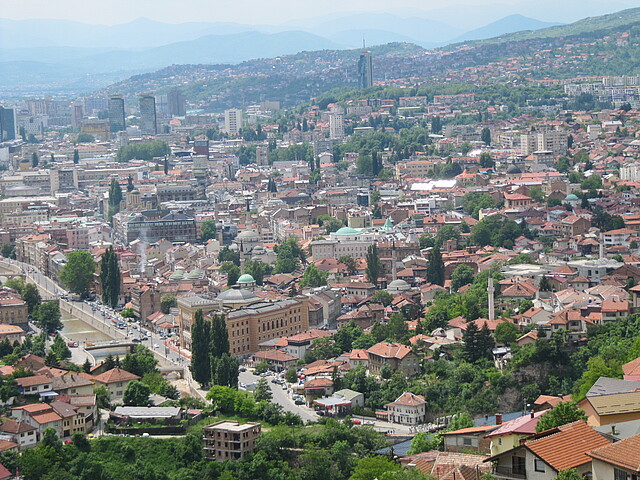
Ljubinka Petrović-Ziemer · 15. Sep 2015
Sarajevo’s tension-laden historical culture, in particular with reference to the war of the 1990s, is the focus of this article. Some historical background information on the city’s political divisions is provided by way of an introduction. An overview of the development and implementation of initiatives for cultural remembrance follows using the example of two permanent exhibitions. Finally, a number of blind spots and points of contention are discussed with regard to official cultures of remembrance in Sarajevo.
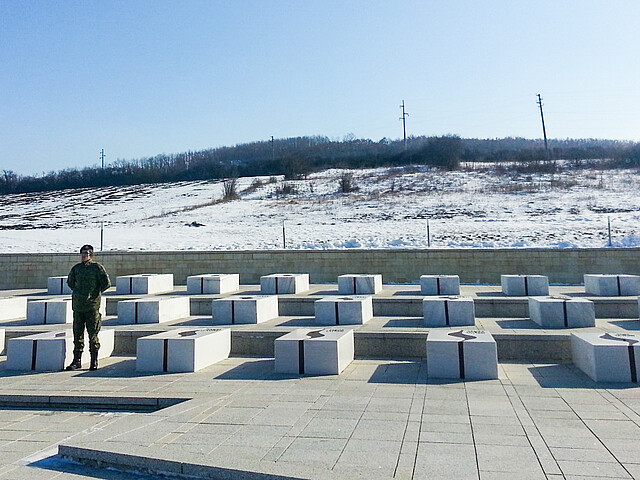
Vjollca Krasniqi · 25. Jul 2016
This article discusses the ways in which history and historical reasoning are integrated into memorialization practices in Kosovo, with a special focus on the Jashari Family Memorial. It demonstrates that as a dominant part of collective memory in Kosovo, the memorial is a site of discursive and memorial acts as well as performative cultural practices in the service of the nation. It is a staple of the ways in which the past is represented and how its meaning is maintained through commemoration.
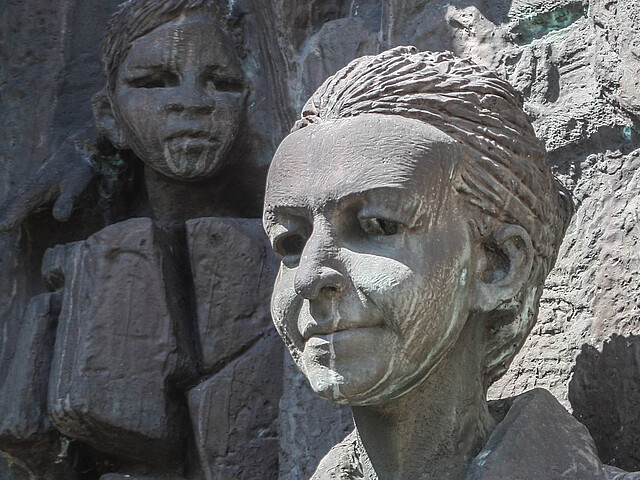
Ana Luleva · 15. May 2014
In October 2012 a conference took place at Sofia University St. Kliment Ohridski that was dedicated to Lyudmila Zhivkova, the daughter of Todor Zhivkov and chairperson of the Bulgarian Committee of Culture (1975-1981). This was an attempt to remember Lyudmila Zhivkova and promote a positive image in the public sphere, yet it provoked a fierce response in the media from political parties and citizens indicating that the memory of socialism is a 'hot' issue in Bulgaria.
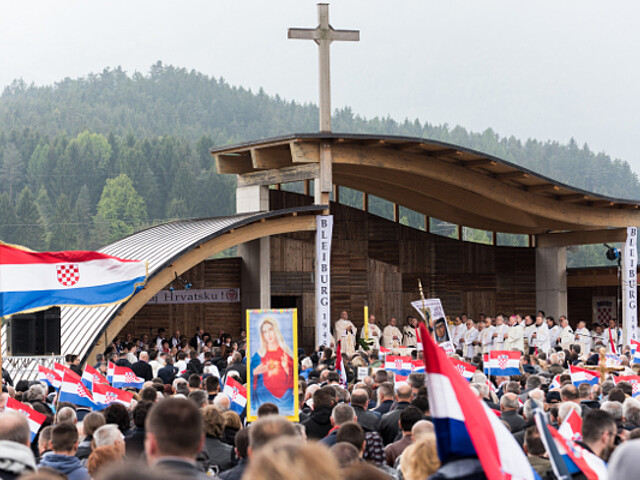
Ljiljana Radonić · 11. Jun 2019
Every year in May thousands of Croats gather in the small Austrian town of Bleiburg to commemorate the so called “Bleiburg tragedy” at the end of the Second World War. Considered by some as the 'biggest neo-Nazi meeting in Europe', this event has triggered considerable controversy, not least due to its political backing from among governing parties. The article provides the historical and memory political backdrop to these controversies shedding light on Croatia's struggle with historical revisionism.
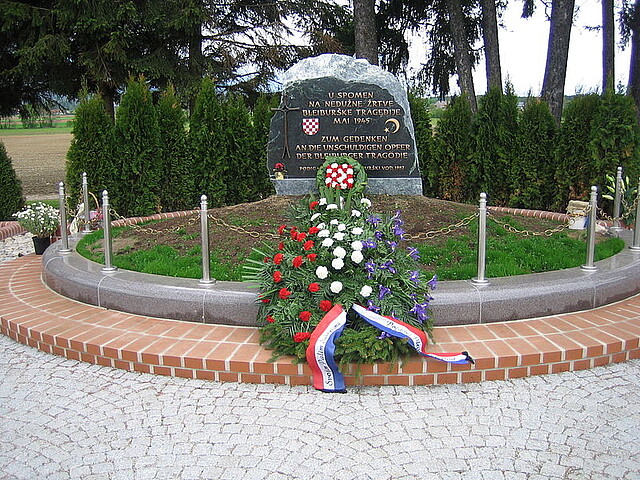
Maciej Czerwiński · 07. Nov 2016
How does Croatia come to terms with the violent history of 20th century wars? Croatian society is deeply polarized over the narratives of the Second World War. Moreover, the Yugoslav wars of the 1990s have been framed within the imagery of the Second World War and are understood either as a continuation of that war, or as the same event conducted under new circumstances. This results in an intertwining of the memories of communism, fascism and the recent Yugoslav wars.
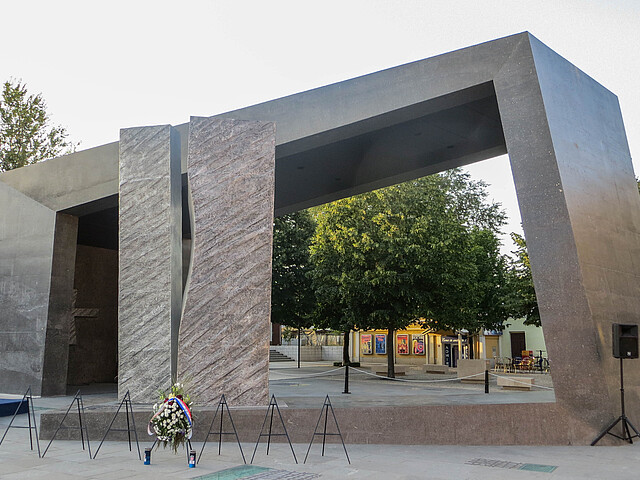
Tamara Banjeglav · 12. Apr 2015
The article analyzes the official, state-sponsored celebration of “Operation Storm”, a military action that took place in Croatia in August 1995, and shows how the celebration has been used in constructing the official narrative about the 1991–1995 war, but also in creating and reinforcing Croatian national identity. The article also explores how the official narrative regarding the 1990s war has been deconstructed and contested by oppositional, sectarian narratives.
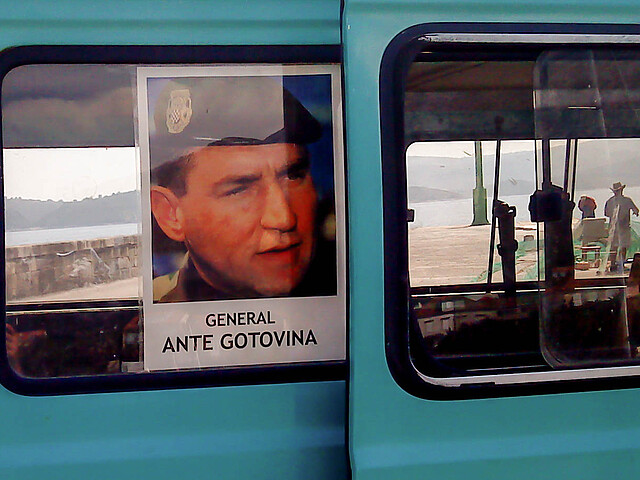
Ljiljana Radonić · 20. Aug 2013
The Hague Tribunal (ICTY) is one of the most important transitional justice institutions with regard to the wars in former Yugoslavia. This article focusses on the different perceptions of the acquittals of the Croatian war-time generals Ante Gotovina and Mladen Markač by the Appeals Chamber of the ICTY in 2012. While this verdict was greatly welcomed in Croatia (96 percent of the population), it was met with outrage in Serbia.

Jiří Smlsal · 25. Jan 2022
For thirty years, Romani and other memory activists have struggled to get a pig farm that stood on the site of the former concentration camp for Czech Roma in Lety removed. This is now going to happen, and a new memorial museum will be set up on the site. The article reconstructs the debates that evolved around the site since the mid-1990s and sheds light on some of the misconceptions and controversies in Czech society about the Romani Holocaust.
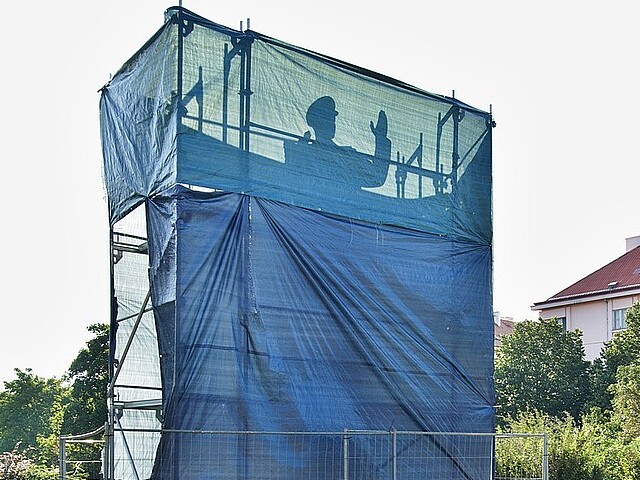
Jakub Vrba · 18. Dec 2020
On 3 April 2020 the statue of former Soviet Army Marshal Ivan Stepanovich Konev was removed from its prominent location in downtown Prague. This radical act was preceded by years of public debate over wartime and postwar Czech history and the role of the Red Army in it. The article reviews these debates and discusses the reasons why controversy has flared up now and to what extent it is the result of changing narratives and shifting memory politcs in recent years.
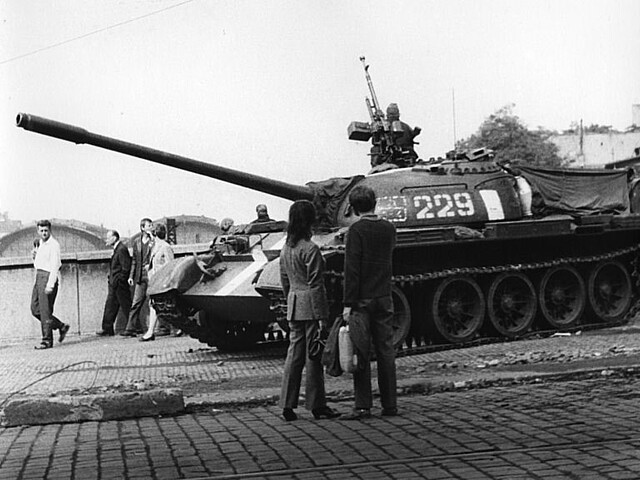
Kristina Andělová · 30. Oct 2018
50 years after the 'Prague Spring' ended, Czech political leaders remain strangely silent in commemorative events. A gradual shift is taking place in the Czech national conversation about 1968, away from the strong anti-communist narrative of the first post-communist decades. However, the opportunity is missed to finally engage a wider public in discussing the political ideas and legacies of 1968 for the country today, leaving room for populists and illiberals to shape the narrative.
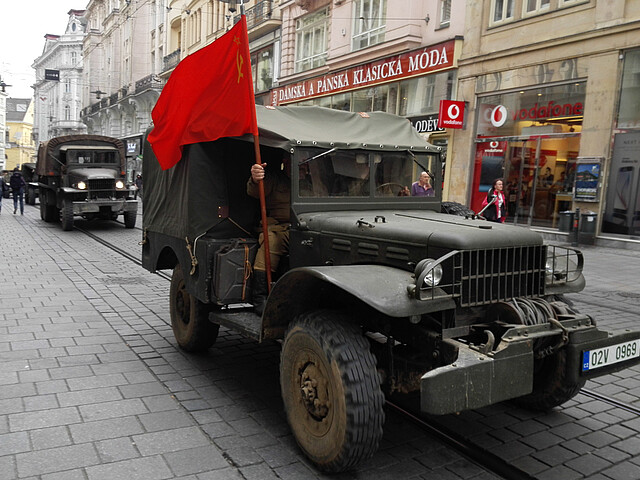
Darina Volf · 01. Mar 2016
This article explores public opinion, commemorations and debates surrounding the 70th anniversary of the end of the Second World War and traces commemoration-related changes since 1989 in the Czech Republic. It argues that the period of essentially ignoring the memories of the former communist narrative has come to an end: we now see a tendency to retrieve those former memories and, as a result, there is greater pluralism in the narration of the past in the public space.
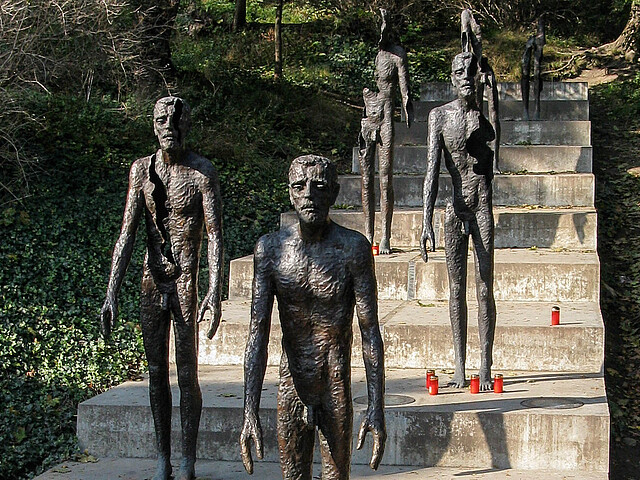
Michal Kopeček · 02. Dec 2013
Dealing with the communist past was one of the constitutive elements of the new or reborn democracies of East Central Europe after 1989. 'Coming to terms with the communist past' was especially important as a means of securing the legitimacy of new democratic regimes. This article provides an overview of how this process was shaped in the Czech Republic and touches upon the most significant events and actors since 1989.
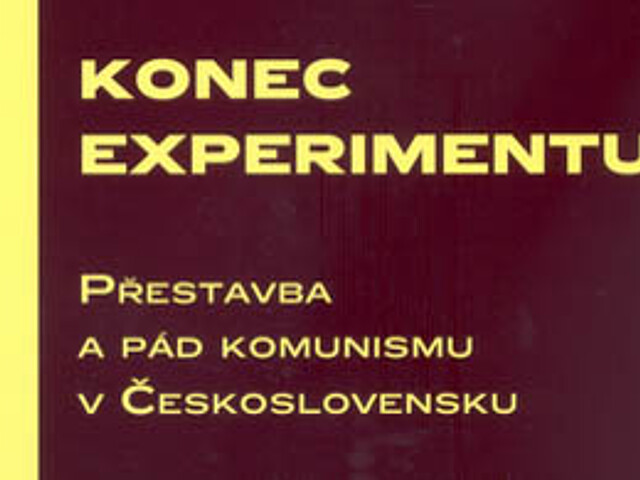
Jakub Vrba · 30. Oct 2013
Michal Pullmann's book “The End of the Experiment” distanced itself from earlier approaches to the last period of state socialism from a methodological and theoretical perspective and thus provoked a debate at various levels in the Czech Republic. This article focuses on these debates, which first and foremost touch the question of the characteristics of the communist regime in Czechoslovakia until 1989.
![Author: Globetrotter19 [CC BY-SA 3.0 (https://creativecommons.org/licenses/by-sa/3.0)]](/fileadmin/_processed_/7/8/csm_House_of_Fates_2018_7b5235d70e.jpg)
János Gadó · 16. Aug 2019
The ‘House of Fates’, the future Holocaust memorial museum in Budapest, stands empty. Efforts to realize this project have divided the Hungarian Jewish community and have been widely criticized as an attempt by the Orbán government to re-write the history of the Holocaust in Hungary. The article reconstructs the main trajectories of this highly politicized conflict by focusing on the key actors, their political manoeuvrings and motives in this ongoing power struggle over the representation of Hungary’s past.
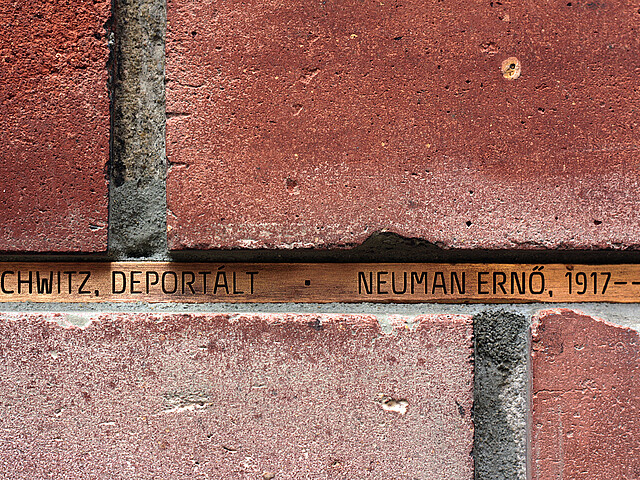
Ferenc Laczó · 21. Jan 2016
This is an analysis of the official initiatives, main controversies, and key scholarly activities related to the 70th anniversary of the Holocaust in Hungary in 2014. It reveals the dualistic agenda behind the official commemoration, an effort to commemorate victims without foregrounding historical responsibility. It also shows that this anniversary only reinforced the bitter societal divisions it was meant to help overcome.
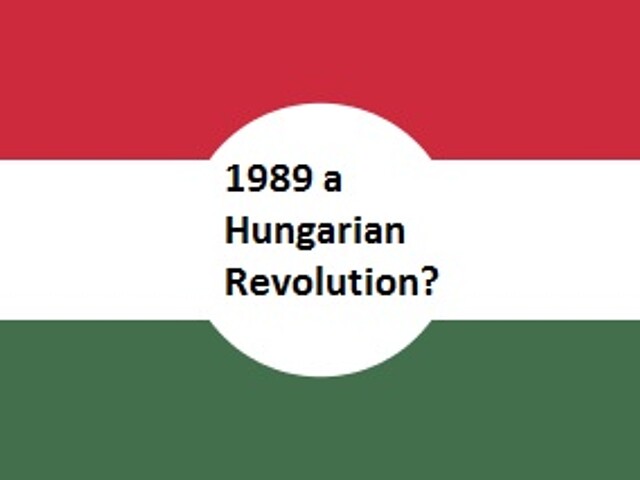
Árpád von Klimó · 14. Jan 2014
The debate on the significance of the events of 1989 has so far taken place only within the realm of politics. The governing Fidesz party is attempting to reinterpret the events, which up to now have been ascribed a mostly positive connotation, and to re-tell them and the subsequent period of transition as a period of crisis that ended only with Viktor Orbán's victory in the elections of 2010. The article scrutinizes why the new interpretations of 1989 are relatively popular and wonders why academic circles have not reacted much to the issues raised.
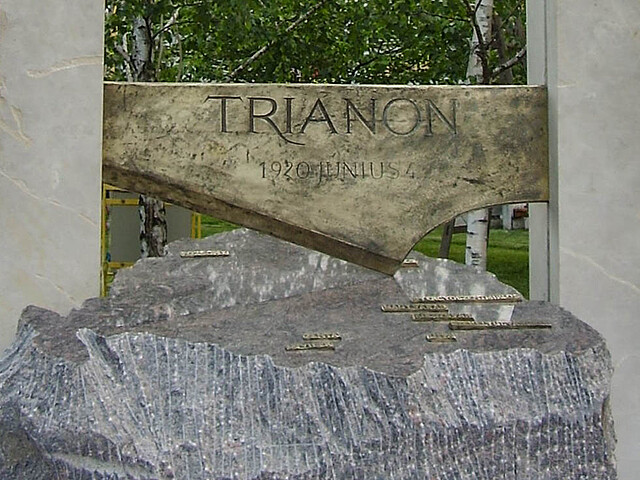
Ferenc Laczó · 11. Nov 2013
The recent debate between Éva Kovács and Krisztián Ungváry, two Hungarian intellectuals, about the memory of Trianon took place in a political context that was defined by new government policies and laws regarding dual citizenship for Hungarians living outside state borders and by ongoing political and symbolic conflicts between Slovakia and Hungary. These conflicts are deeply intertwined with the divergent interpretations of the shared history. The article reviews the main arguments made in this debate and identifies the issues that were left untouched.

Máté Rigó · 15. Apr 2013
In 2012 a debate took place among Hungarian academics about how to write the country's 20th-century history in an ethically and professionally adequate way, with a particular focus on anti-Semitism and the legacy of the Holocaust. This article summarizes the main points of the original exchange between two historians and examines which threads of the subsequent discussion were the most fruitful in terms of initiating a debate about the controversial legacies of 20th-century Hungarian history.
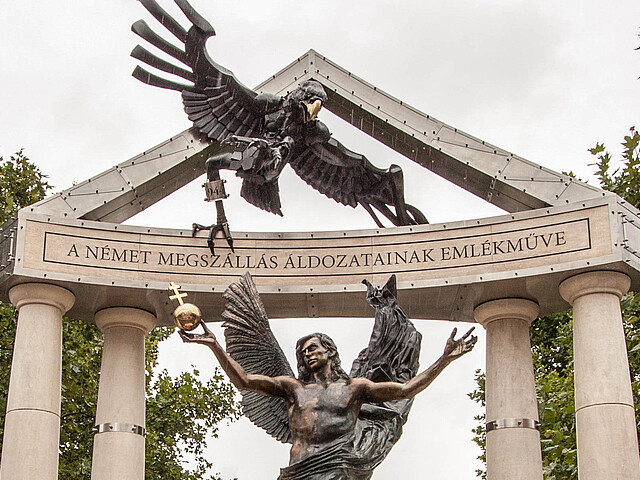
Sándor Horváth · 12. Apr 2015
The Hungarian government declared 2014 the ‘Year of Holocaust Remembrance’ in response to accusations that it had failed to stem anti-Semitic tendencies in the country. In July 2014 a monument was erected on Liberty Square in Budapest to commemorate the victims of Nazi occupation of Hungary. The article discusses the historically problematic message conveyed by this monument as well as the politics and protests that surrounded its creation.
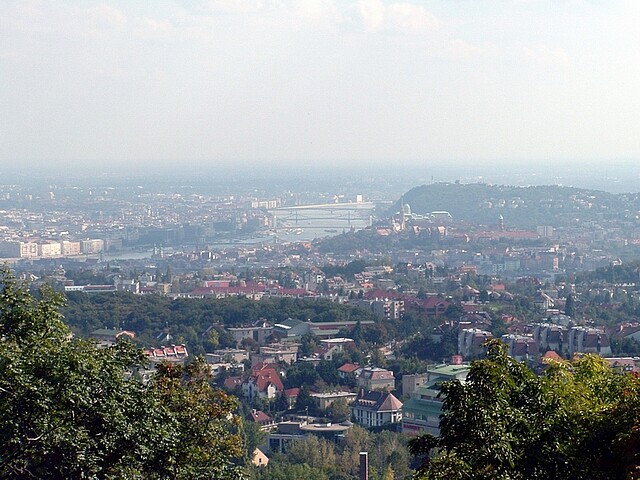
Paul Hanebrink · 17. May 2015
Hungarian post-1989 politics has been very much defined by contrasting interpretations of the regime change and its aftermath. The article shows how these differences shaped Hungary’s political landscape, now very much defined by the Fidesz party. Moreover, the article reveals how the political context has shaped (and often distorted) debates about fundamental issues in the country’s more distant past, including the loss of territory after 1918, the interwar period and the comparison of German and Soviet occupations as two totalitarian evils.
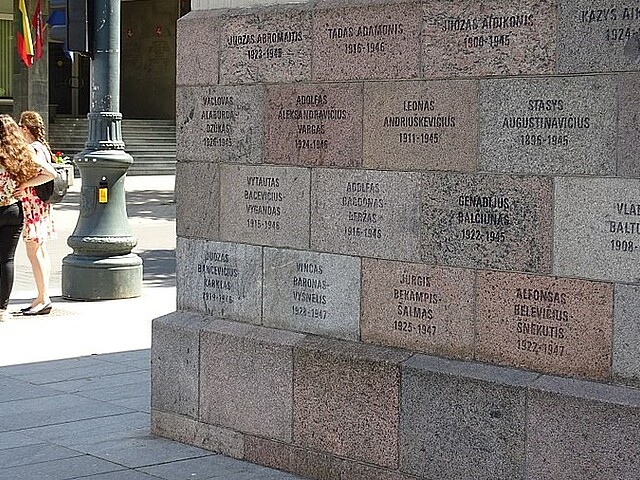
Violeta Davoliūtė · 29. Sep 2021
In early 2021, the Director of the Genocide and Resistance Research Centre (GRRC) in Vilnius was replaced provoking a wide-ranging debate on the inner workings and public mandate of the nation’s leading memory institution. The article discusses the Centre's past performances between conducting historical research and engaging in memory activism and it reflects on the new appointment's potential to strike a better balance.
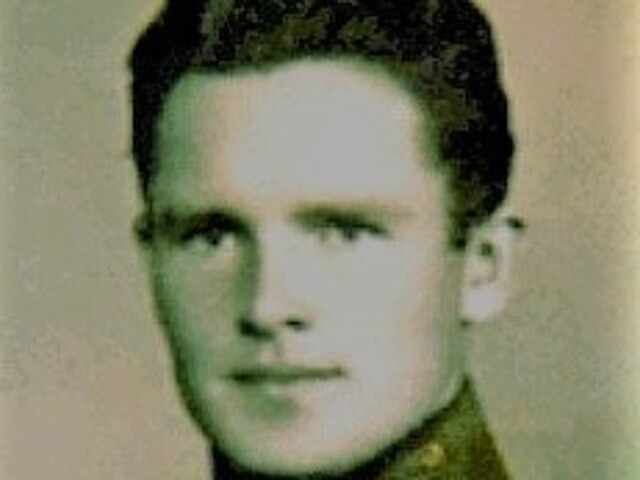
Violeta Davoliūtė · 19. Dec 2018
A recently published personal story by American-Lithuanian writer Silvia Foti about her grandfather's involvement in the Holocaust in Lithuania has raised critical questions in the Lithuanain public about who has the right and authority to pronounce judgement on the nation’s history. The article reviews this debate and discusses how intimate and self-critical stories like Foti's fit within the official narrative and public celebration of the heroic resistance nation in contemporary Lithuania.
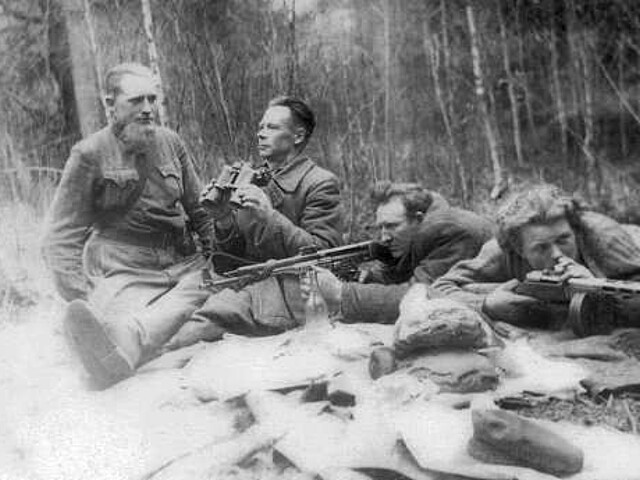
Violeta Davoliūtė · 17. Nov 2017
Against the backdrop of Russia's military aggression against Ukraine and its ongoing political warfare against the West, Lithuanians have mounted a social and cultural campaign to elevate the post-WWII anti-Soviet insurgents as exemplars of patriotic resistance and statesmanship. Yet some critics have pointed to the controversial aspects of this armed struggle. The article outlines the historical and cultural context to an emotionally charged debate, arguing for a full and frank examination of the traumatic past.
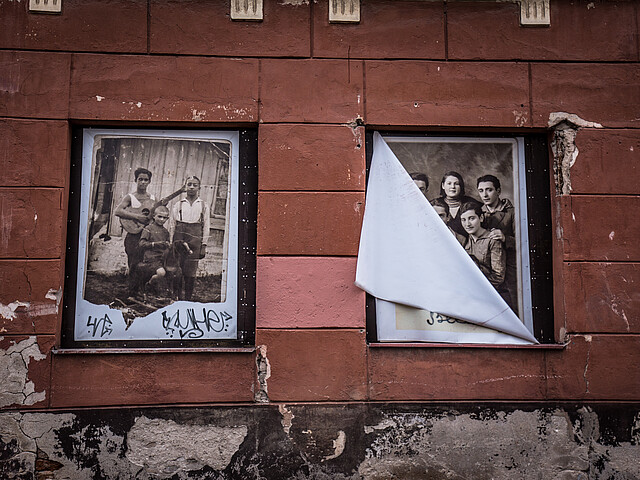
Ekaterina Makhotina · 27. Sep 2016
A recently published travelogue by Lithuanian journalist Rūta Vanagaitė raised critical questions about Lithuanians’ complicity in the extermination of their Jewish neighbours. The book sparked vivid responses among both historians and the wider Lithuanian public. The article places the debate in the broader context of Lithuania’s post-Soviet politics of memory vis á vis the Holocaust and reflects on whether the popularity of this book constitutes a shift in public historical consciousness about this controversial period.
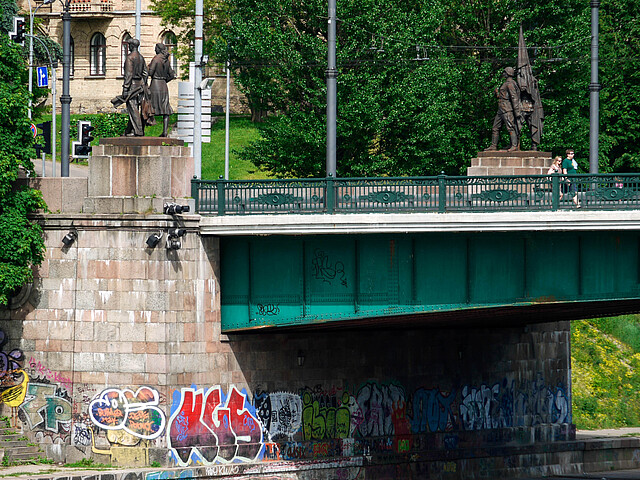
Rasa Baločkaitė · 12. Apr 2015
In recent years Lithuania has witnessed many heated debates and an extreme polarization of opinions regarding its Soviet heritage. At the epicentre of the most recent debate are four group statues representing major social groups of the Soviet period – industrial workers, peasants, students and soldiers – which were erected on the Green Bridge in Vilnius in 1952. In 2010 the controversy over what to do with the slowly decaying statues – remove or renovate - revealed a cultural conflict that has lasted for the past five years without reconciliation.
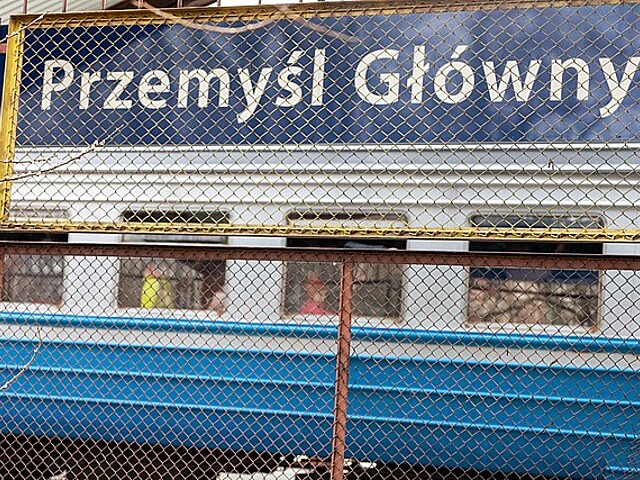
Lidia Zessin-Jurek · 20. Apr 2023
Amidst Russia's war against Ukraine and against the backdrop of an often contentious and politicized shared history, Poland has demonstrated extraordinary solidarity with Ukraine, welcoming and helping thousands of refugees. The article discusses how various Polish memory frames have affected public attitudes towards the Ukrainian refugees and how in turn, the war and the refugees have impacted on collective remembrance in Poland.
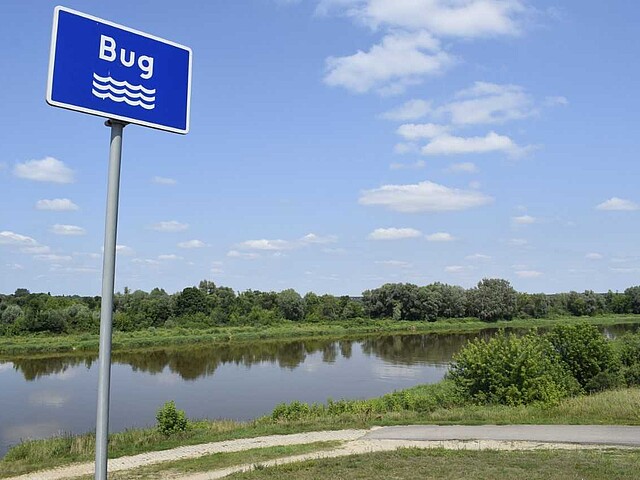
Lidia Zessin-Jurek · 20. Dec 2021
Images of refugees being trapped at the eastern Polish border have evoked memories of another time: in 1939, Polish Jews fleeing from Nazi occupied Poland eastwards were denied entry to the Soviet Union and were stuck right at the same place as people today, along the river Bug. Reflecting on the historical analogies that have been drawn in this context in Polish public debate, the article discusses their validity and usefulness in understanding similarities and difference of both past and present refugee crises.
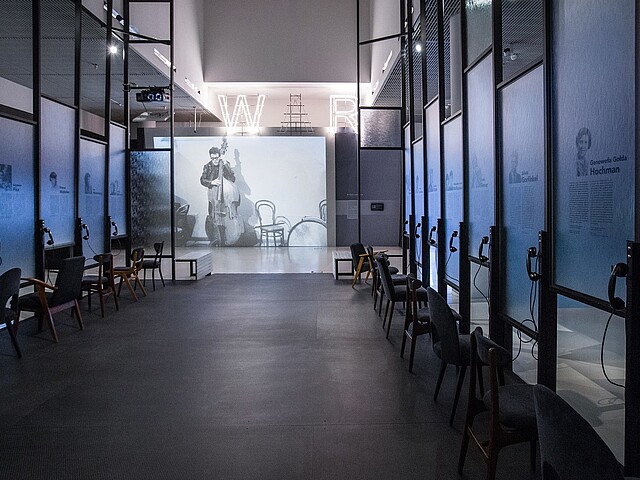
Maria Kobielska · 28. Sep 2018
The latest temporary exhibition by the Museum Polin in Warsaw entitled 'Estranged. March ’68 and its Aftermath' has been controversially discussed in the Polish public. The article gives a brief review of the exhibition to then analyse the subsequent debates as they provide an insight into contemporary Polish culture of remembrance and into the particularly sensitive issue of Poland's postwar Jewish-Polish relations.
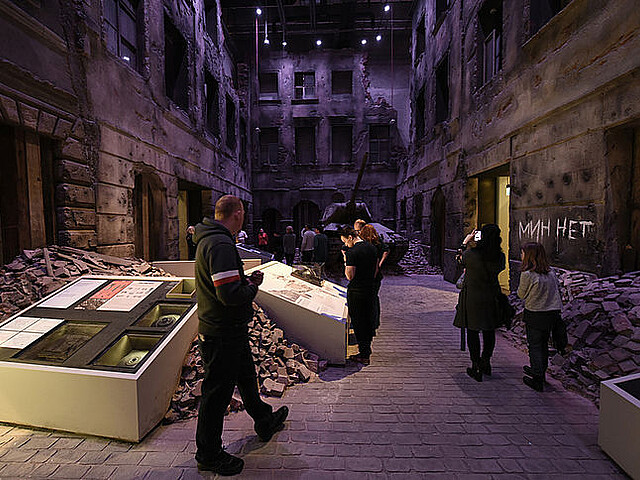
Daniel Logemann · 21. Mar 2017
The partial opening of the Museum of the Second World War in Gdańsk in January 2017 has become an occasion to reflect on the political struggles and rhetoric surrounding this museum. Reconstructing and discussing the most recent administrative and pseudo-academic attempts by the PiS government to prevent the museum from opening its doors, the article shows how this fight is part of a broader, still ongoing government policy to re-orient Polish ‘history politics’ along nationalist lines.
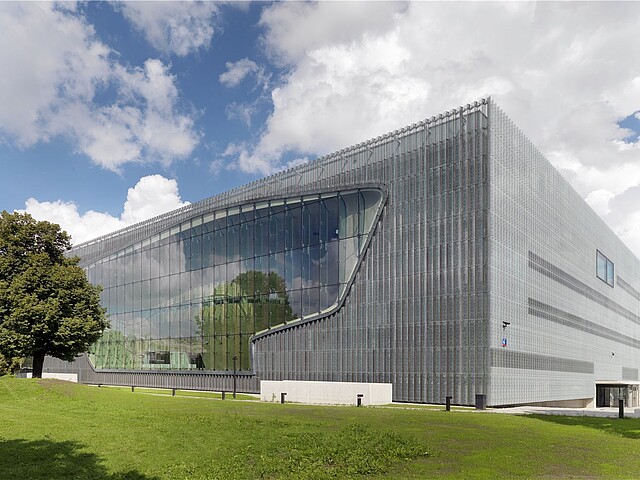
Piotr Osęka · 09. Nov 2015
The Museum of the History of Polish Jews stirred up journalistic emotions long before its doors opened to visitors. The article discusses how this institution, located in a modern building in central Warsaw, gave rise to hopes and fears, satisfaction and sorrow. Some expected the museum would figuratively and literally become a place for debates, where 'Polish historical consciousness could mature'; others predicted that this investment would only serve as anti-Polish propaganda.
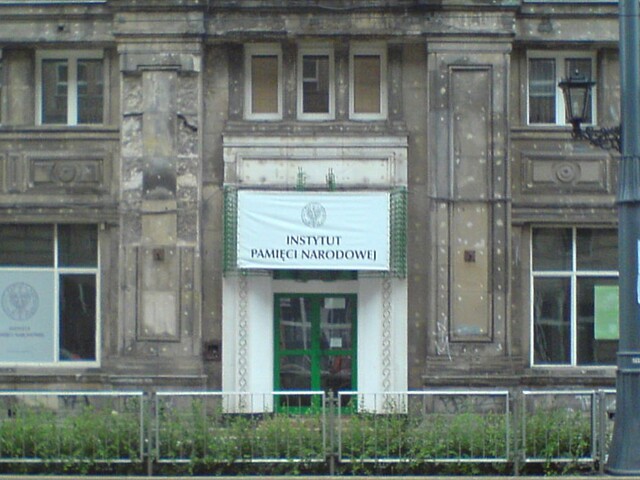
Piotr Osęka · 13. Apr 2015
The recent past is frequently the subject of heightened public debates in Poland. Historians receive considerable media attention, their publications and statements draw comments from journalists and politicians. These disputes invariably revolve round three fundamental issues: Polish–Jewish relations, opinions about the Warsaw Uprising, and settling scores with communism. The article provides a critical review of the themes and arguments in each of these disputed areas.
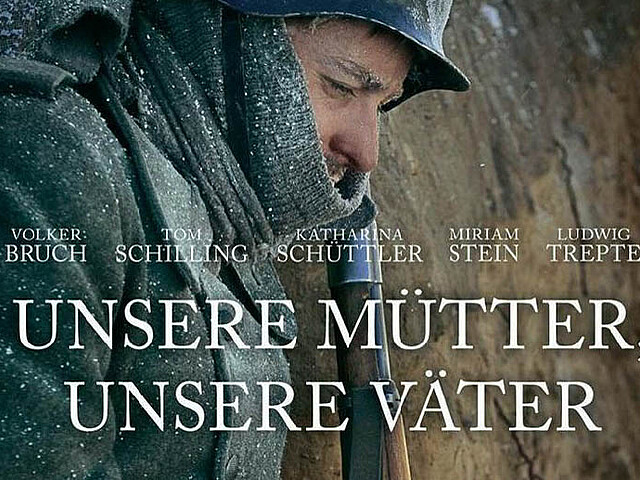
Daniel Logemann · 02. Sep 2013
The three-part German miniseries "Unsere Mütter, unsere Väter" (Generation War) gave rise to a heated German-Polish debate that focused on the depiction of members of the Polish Home Army (Armia Krajowa) as anti-Semitic. The article reconstructs this debate, demonstrating the widespread German ignorance about recent Polish history. It also concludes that the way the controversy was jointly moderated by both German and Polish actors was positive.
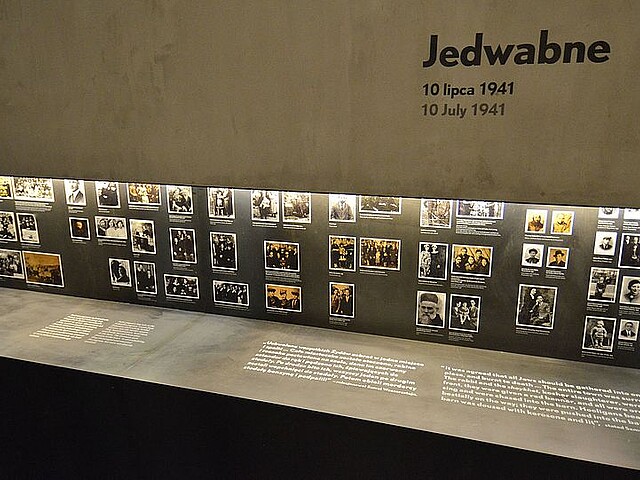
John Connelly · 24. Nov 2012
In 2012, while conferring a posthumous Presidential Medal of Freedom on the Polish anti-Nazi resistance fighter Jan Karski, Barack Obama inadvertently touched off the greatest crisis in US-Polish relations in recent memory. It was his use of the phrase "Polish death camps" in his speech that set Polish officials off demanding an apology. The article takes this incident as an opportunity to reflect on the sensitivities and pitfalls of addressing recent Polish history during Nazi occupation.
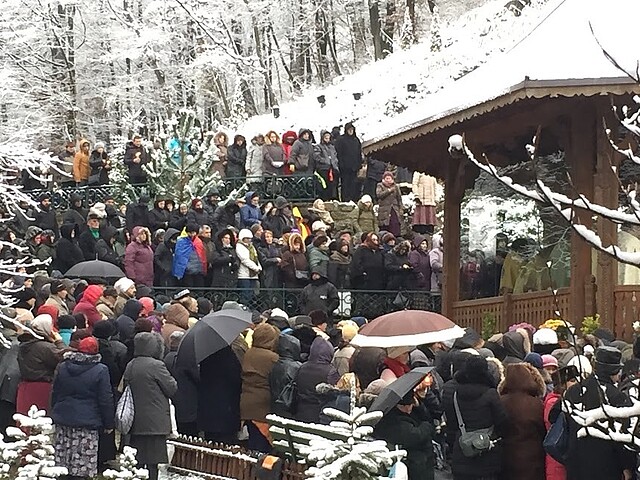
Monica Ciobanu · 19. Feb 2018
The historical role played by the Orthodox Church and individual priests as both conspirators with and opponents to Ceauşescu’s rule continues to be debated in Romania today. Recent developments appear to associate the Church with a controversial movement that advocates for the canonisation of former political prisoners of Orthodox faith, some of whom were members of the fascist Iron Guard movement of interwar Romania. The article provides background and assesses the debate that spans issues of historical justice, memory and religion.

Gundel Große · 02. Sep 2013
The past years have seen a growing public debate among Romanian writers both in Germany and Romania, and increasingly a wider public, over the nature and extent of certain writers' collaboration with Ceauşescu's secret police, the Securitate. This article traces the key positions and characteristics of that debate, offering insights into Romania's present-day process of confronting its communist past.
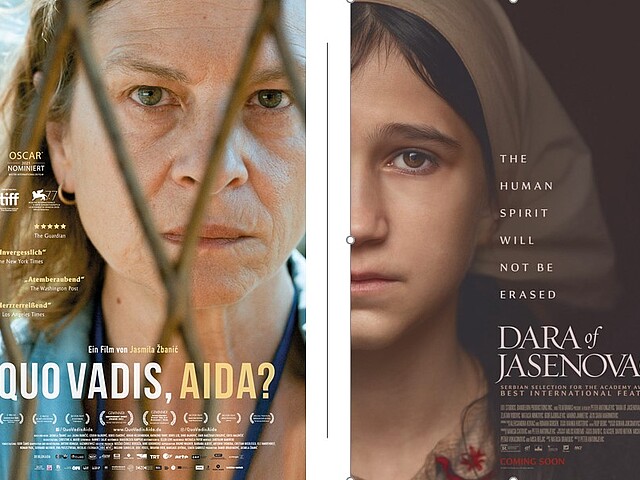
Nevena Daković · 21. Apr 2022
Cinematic attempts to tell the story of historical mass violence and trauma in former Yugoslavia are often steeped in political controversy. The article discusses two recent films – ‘Dara of Jasenovac’ (Serbia, 2020) and ‘Quo vadis, Aida?’ (Bosnia-Herzegovina, 2020) – and the public reactions to them. While both films share certain features such as looking at historical horrors and inter-ethnic violence from a female perspective, they differ remarkably in style as well as in how they were received in Serbia and beyond.
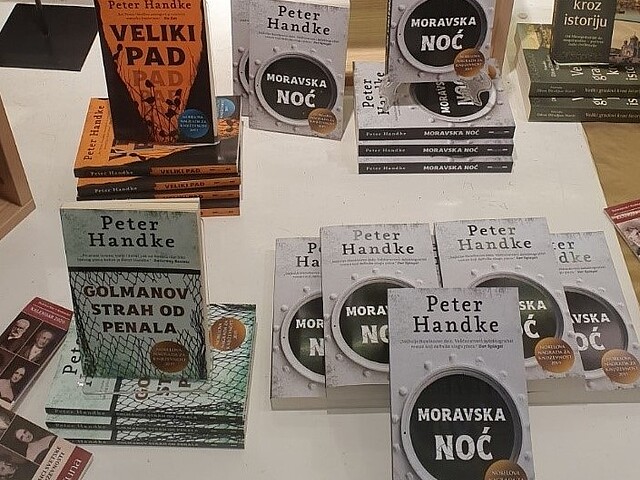
Katarina Ristić · 31. Jul 2020
The Nobel Prize for Literature in 2019 to Peter Handke sparked a harsh debate, both in Serbia and internationally due to the Austrian writer's controversial stances in defence of Slobodan Milošević and the crimes committed by Serbian forces during the 1990s. The article provides a critical review of the debate and the continued divisions in retrospective interpretations of the Yugoslav wars.
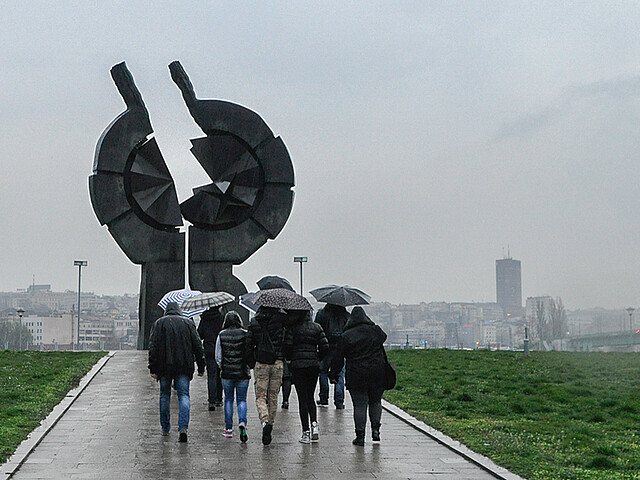
Rena Jeremić Rädle · 25. Oct 2015
There is barely a hint that the buildings across from the most popular shopping mall in downtown Belgrade once housed the biggest fascist concentration camp in Serbia. Only the attentive observer will notice the derelict tower on the banks of the Sava river with rundown modernist pavilions clustered around it. How can it be that all attempts to create an appropriate place of memory at this site of the Holocaust and brutal repression against political prisoners have failed?
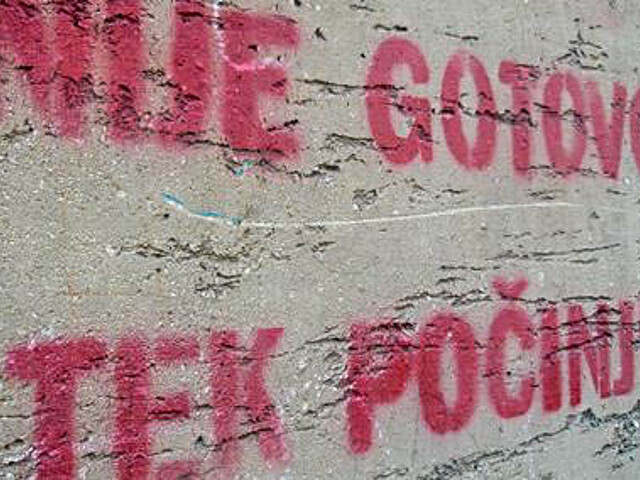
Daniela Mehler · 17. Apr 2013
As Serbia began legislative debate on whether to renew a 2003 law on lustration, public debates erupted concerning issues of archival access and of dealing with past and present office holders who had allegedly committed mass human rights violations. An analysis of the public discourses, involving both media and civil society, however, shows that this subject is still largely up in the air.
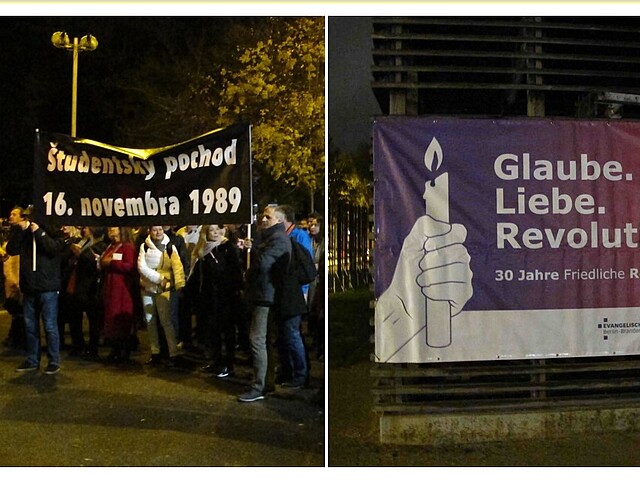
James Krapfl and Andrew Kloiber · 28. May 2020
How strong are memories of the 1989 revolution in Germany and the Czechoslovak successor states, and how do they reinforce democratic politics today? In a comparative review of the anniversary commemorations in Leipzig, Berlin, Prague and Bratislava, the article discusses to what extent these events managed to reanimate the civic spirit of 1989 and how they alert to contemporary threats to democracy.
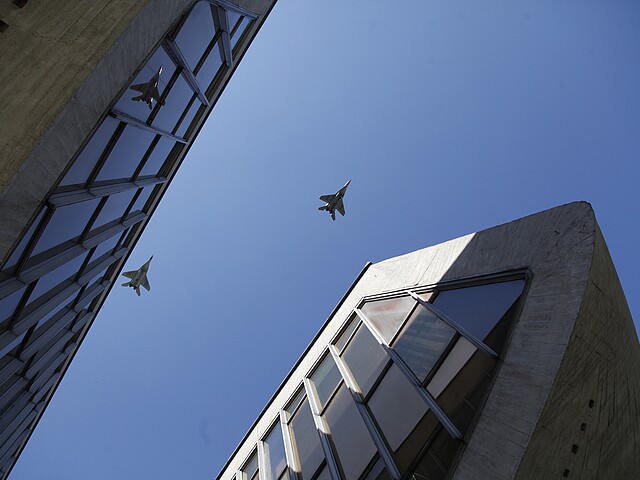
Adam Hudek · 12. Apr 2015
The anti-fascist Slovak National Uprising in 1944 is generally considered one the most important events in modern Slovak history. This article focuses on the Uprising’s 2004 and 2014 anniversary celebrations and examines various approaches taken in defining its legacy. The text demonstrates how the political agenda of the day has influenced this process. Furthermore, it focuses on reactions to revisionist attempts to interpret the legacy of the Uprising and how the events of 1944 have been used to legitimize a new wave of nationalism.
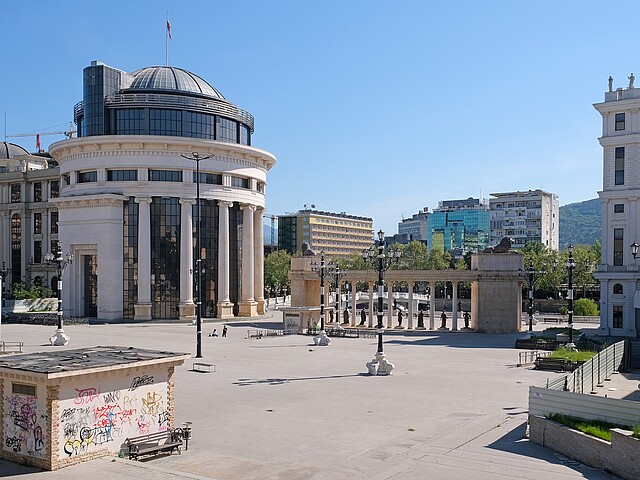
Naum Trajanovski · 20. Jun 2024
In September 2023, Skopje was named the 2028 European Capital of Culture alongside Bourges and České Budějovice. The news renewed a debate within North Macedonia about the capital city’s past, present, and potential futures. Common to all positions in the debate was that they referred, in one way or another, to the Skopje 2014 project. This article maps the latest critical events pertaining to this project and discusses its legacy after nearly fifteen years.
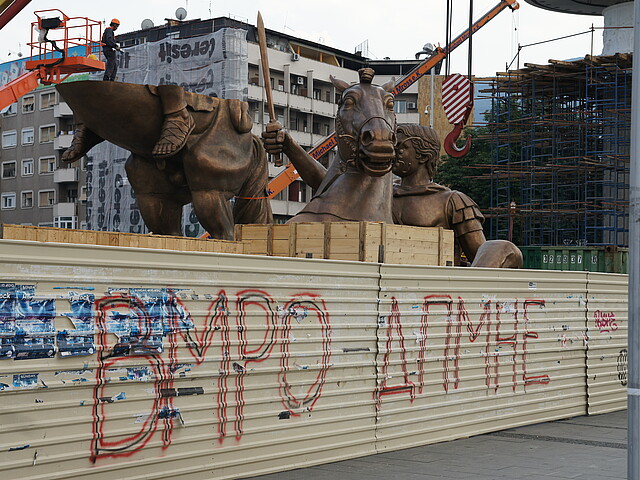
Goran Janev · 12. Apr 2015
The article discusses the 2014 total re-make of the cityscape of Skopje, Macedonia by a massive building offensive as well as the erecting of numerous monuments chosen for their value and utility in constructing a Macedonian national identity. The analysis focuses both on the remaking of the capital city as an effective means of changing the identity of a nation and on the unintended results of these efforts in a reawakened public sphere.
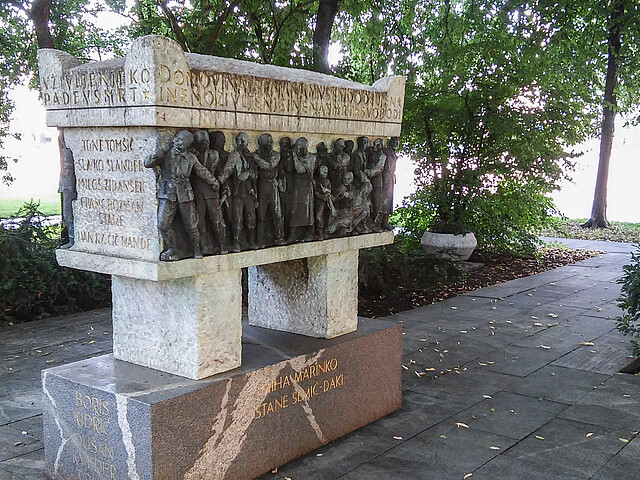
Marko Zajc · 25. Oct 2015
In May 1985, Yugoslav Slovenia celebrated Victory Day and the 40th anniversary of liberation. In May 2015, independent Slovenia celebrated the 70th anniversary of the war’s end as if it had been a kind of a natural process that ended, just like summer ends. What happened to the victory celebration? This article argues that the discursive differences between the two state celebrations reflect the deep crisis of official state/national ideology.
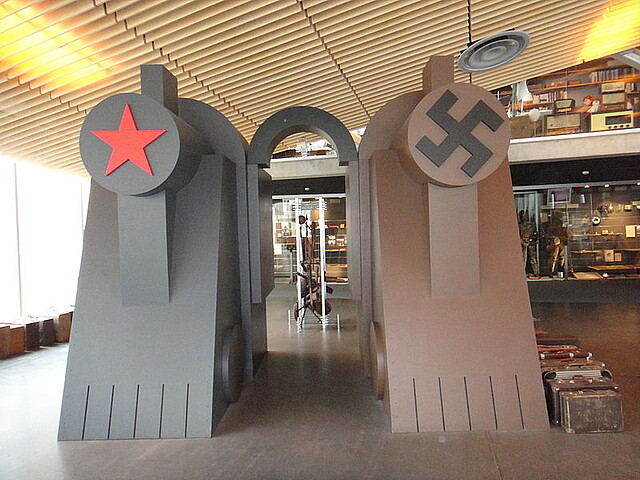
Lorraine Weekes · 25. Apr 2017
The 2016 announcement that Tallinn's Museum of Occupations would soon be re-launched under the name "Museum of Freedom" brought swift and vitriolic critique from a diverse array of citizens, heritage groups, and politicians. The article analyses some of the key themes of the controversy showing how it emerged from competing ideas about what role the master narrative of Estonian victimhood should play; it also highlights the ways in which the debate was shaped by Estonia’s social and geopolitical context.
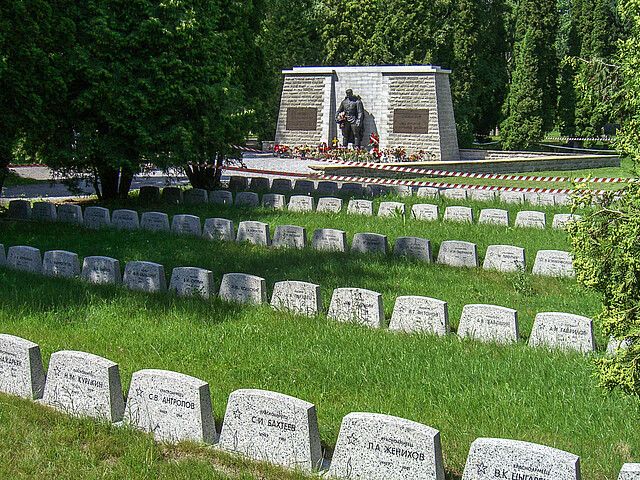
Heiko Pääbo · 25. Oct 2015
Official commemorations of the end of the Second World War in Estonia take place on May 8 and they focus on the victims of what is perceived as the most traumatic event in recent national history. A day later, another commemoration takes place that celebrates the war's end as victory and is attended by many Russian-speakers of Estonia. These two events epitomize the mnemonic landscape of Estonia characterized by two memory regimes that exist as parallel universes.
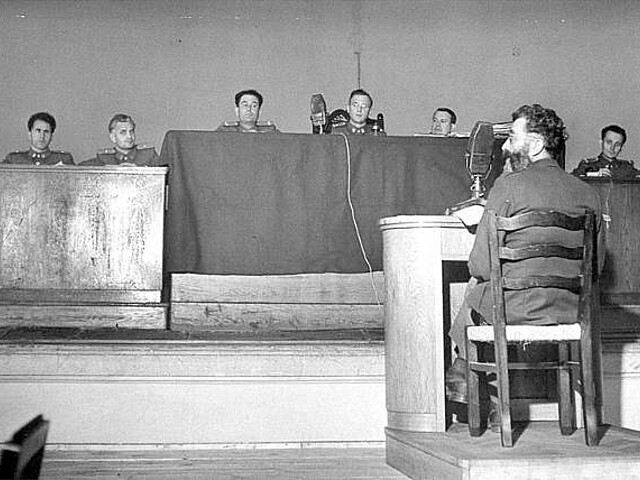
Srđan Milošević · 30. Oct 2017
In 2015 the Serbian Supreme Court rehabilitated wartime General Dragoljub Mihailović, who had been prosecuted by a communist tribunal in 1946. The article places the protracted rehabilitation procedure into the context of both Cold War-era memory politics regarding the figure of Mihailović and post-Milošević transitional justice politics. Pointing to the highly politicized legal procedures of this case, it provides interesting insights into Serbia’s ongoing struggles over the legacies of the Second World War.
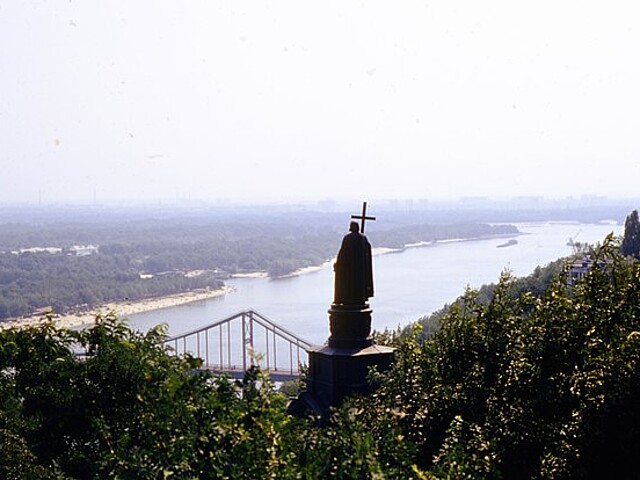
Jeremy Cohen · 25. Jan 2023
Putin justified his invasion of peaceful Ukraine in February 2022 by questioning the very idea that Ukraine has a national history distinct from Russia. At the core of this claim is the shared history of the Kievan Rus'. The article provides a critical analysis of the uses and abuses of Rus' history by both states and of their strategies to craft that history into a national narrative and weapon in the current war.
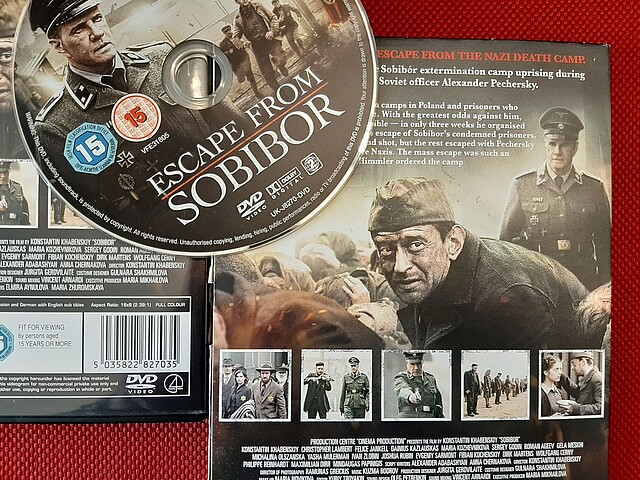
Raphael Utz · 27. Nov 2020
As part of our continuous Focus on the memory of the Shoah in Central and Eastern Europe, the article discusses the 2018 Russian feature film ‘Sobibor’ and the story it tells about Sobibór and the Holocaust. Apart from revealing the ahistorical character of this movie, as well as its antisemitic undercurrent, the article also highlights the broader political context of this officially sanctioned production, raising questions about the current Russian history policy regarding the Holocaust.
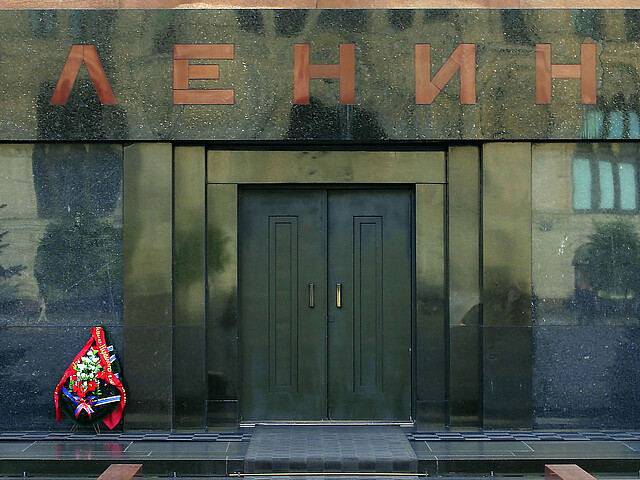
James Ryan · 20. Jan 2017
The focus of this article is the Russian state’s attempts to prepare for the challenges of commemorating the centenary of the 1917 revolutions, at precisely a time when the state has been acting as a bulwark against revolution in Ukraine and Syria, and has been attempting to undercut the bases for upheaval at home. What can we learn about the mindset of Russia’s ruling elite through examination of their approach to the centenary?
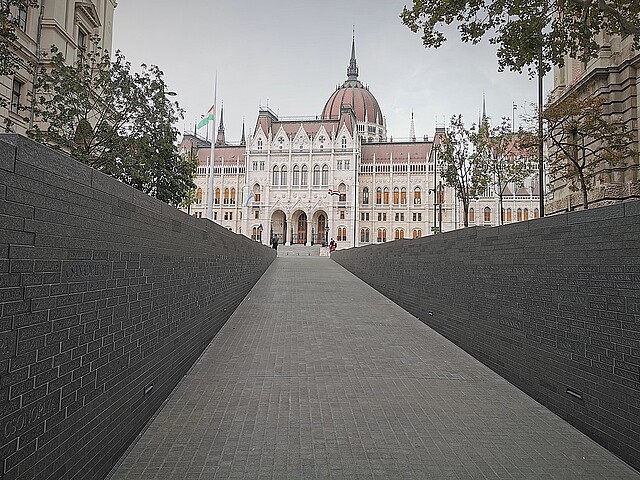
Ágoston Berecz · 18. Jan 2021
A new Trianon monument has been inaugurated in August 2020 right opposite the parliament building in Budapest. Installed by government decree without much prior deliberation, the ‘memorial ramp’ reveals the current government’s flirtation with irredentist, 'Greater Hungary'-fantasies. While briefly reviewing public reactions to this new installation, the article's main focus is on the monument’s construction of a historical narrative of Hungary's pre-Trianon 'Golden age' and discussing it in its historical evolution.
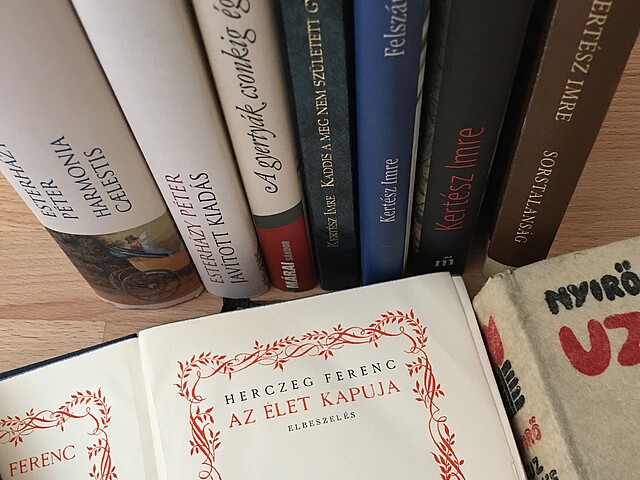
Katalin Madácsi-Laube · 28. Jun 2020
Recent revisions of Hungary's National Core Curriculum have been widely criticized, both within the country and abroad. Especially the inclusion of controversial authors and the simultaneous removal of others, among them Imre Kertész, raised concerns about the current government's culture war now being taken to the classroom. The article reviews the new curriculum and the ensuing public debates, and reflects on its repercussions for Hungary's democratic historical culture today.
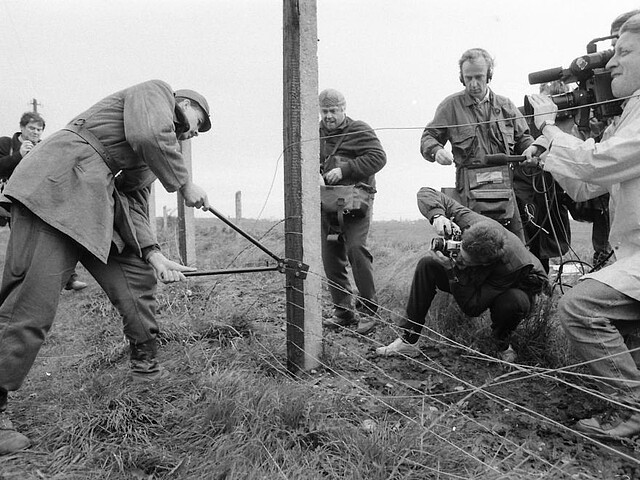
Emily Gioielli · 07. Feb 2020
Official narratives about the legacy of 1989 and of Hungary’s role in bringing down the Berlin wall have changed significantly over time. The article zooms in on the public commemorations of one particular event, the 'pan-European picnic' at the Austro-Hungarian border, to show how Hungary’s elite is increasingly turning the original story of this event, a Europe without borders, into a story of Hungary as the sole protector of Europe’s borders and values against unwanted outsiders.
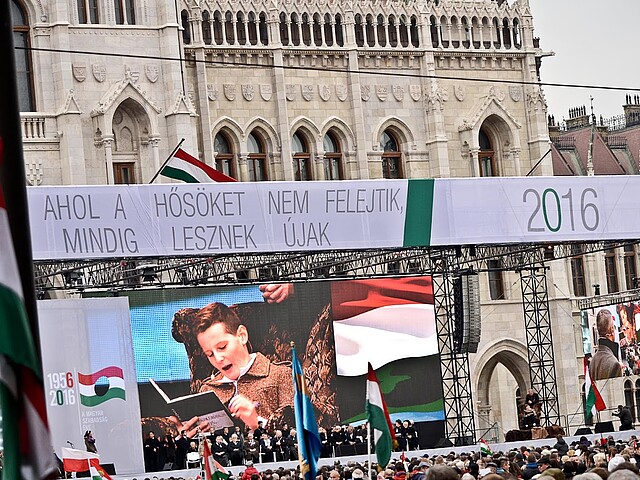
Nora Borodziej · 16. Feb 2017
The sixtieth anniversary celebrations of the 1956 Hungarian revolution took a new turn when Viktor Orbán used the opportunity to criticize the European Union and further the Fidesz nationalist agenda. This article discusses the commemorations in their historical context since 1989 and closely analyses the speeches and festivities in Budapest. It shows the continuous uses of this date for partisan purposes and asks what this means for Hungarian collective memory.
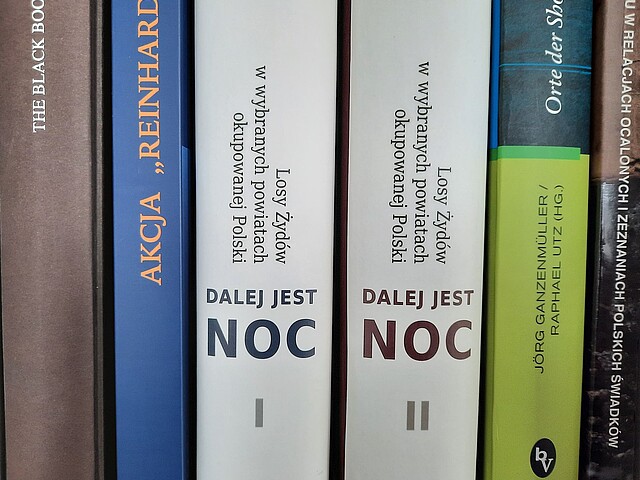
Interview · 08. Mar 2021
The recent verdict against two Holocaust researchers in a Polish civil law court raised much concern about the increasing juridification of history in Poland. The Cultures of History Forum asked the legal scholar and civil rights lawyer Dr. Aleksandra Gliszczyńska-Grabias about the legal and political background of this lawsuit, as well as about antisemitism and the role of the judiciary in the Polish government's 'historical policy'.
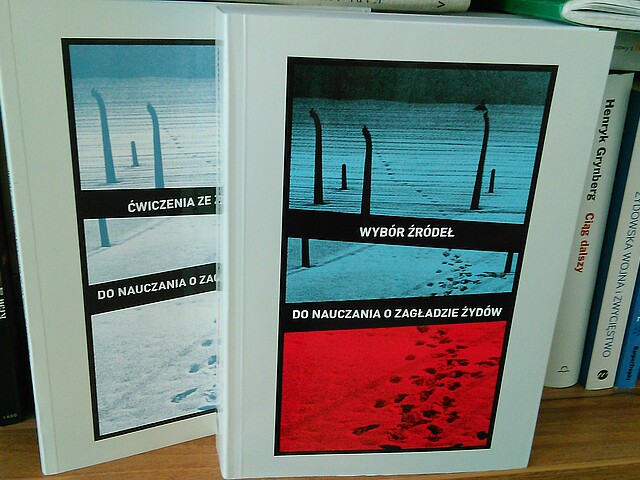
Lidia Zessin-Jurek · 03. Sep 2019
Teaching about the Holocaust in Poland has become more difficult. Based on interactions with Polish teachers and on a review of the field of Holocaust education in Poland as it evolved over the past decades, the article discusses and comments on the current situation where teachers are faced with curriculum changes, public campaigns against a "pedagogy of shame" and multiple pressures to teach a more ‘patriotic’ history at school.
![Author: Adrian Grycuk [CC BY-SA 3.0 pl (https://creativecommons.org/licenses/by-sa/3.0/pl/deed.en)], from Wikimedia Commons](/fileadmin/_processed_/2/c/csm_800px-Siedziba_Instytutu_Pamieci_Narodowej_przy_ul_cropped_4f27be38e1.jpg)
Marta Bucholc and Maciej Komornik · 19. Feb 2019
One year after the Polish parliament adopted an amendment that would criminalize certain statements about Polish involvement in the Holocaust, this article revisits both the original amendment and the political developments since. It argues that allthough the law was eventually changed to calm down concerns about freedom of speech, sanctions still exist and their longer-term effects on Polish society and public discourse are daunting.
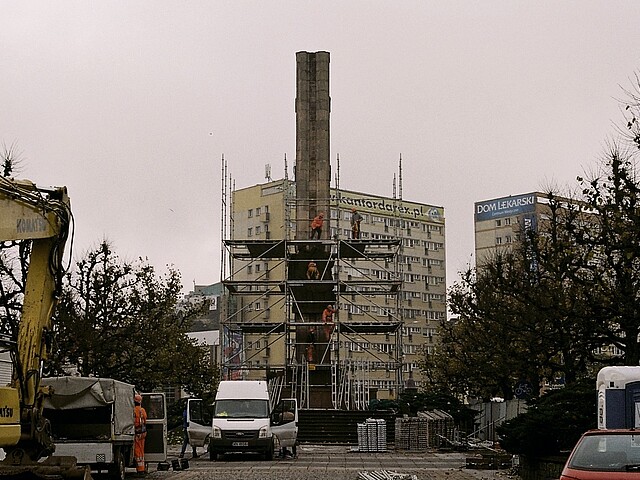
Nancy Waldmann · 23. Mar 2018
A new wave of de-communization has swept over Poland: streets and squares are re-named and monuments dismantled. In the cities and towns of northern and western Poland, that became Polish only after 1945, these measures are met with mixed feelings as they touch upon specific local memories of the post-war years. The article gives an insight into how local councils and citizens have struggled to comply with state history policy while also protect local historical identities.
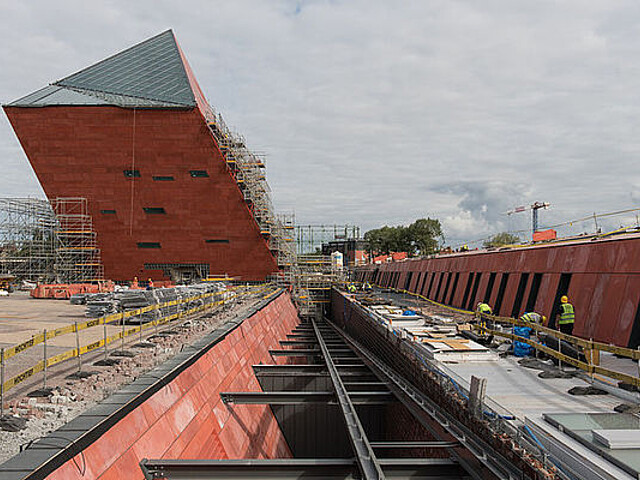
Florian Peters · 03. Oct 2016
After bringing the constitutional court to a standstill and cleansing public television to make it conform to party-political criteria, the Polish government that dominated by the PiS party has shifted its attention to the politics of memory. The article gives a critical review of recent steps taken by the government and parliament to stir the public representation of contemporary history in a national conservative, “patriotic” direction. This "historical policy" not only comes at the expensive of pluralism, but it has also already resulted in public unrest.
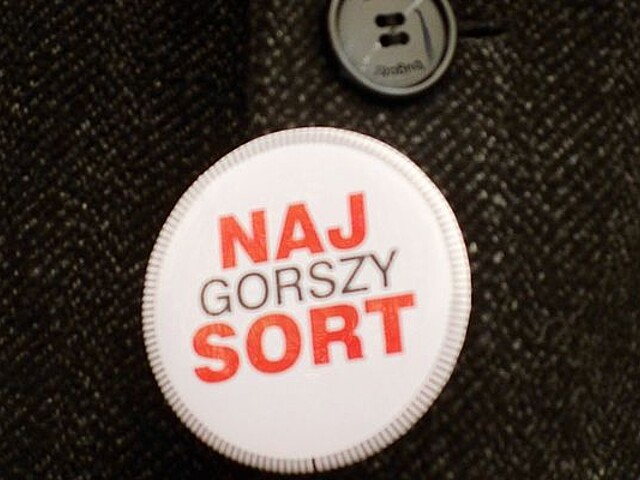
Adam Leszczyński · 24. May 2016
History plays a huge role in Polish public debates, politics, and the ideology of the ruling PiS party. "Historical policy" is now officially on the agenda of the government and its agencies. Doctrine regarding the układ and all-pervading communist agents is now the official version of history. This article examines the way history has been used under the PiS government in Poland since November 2015.
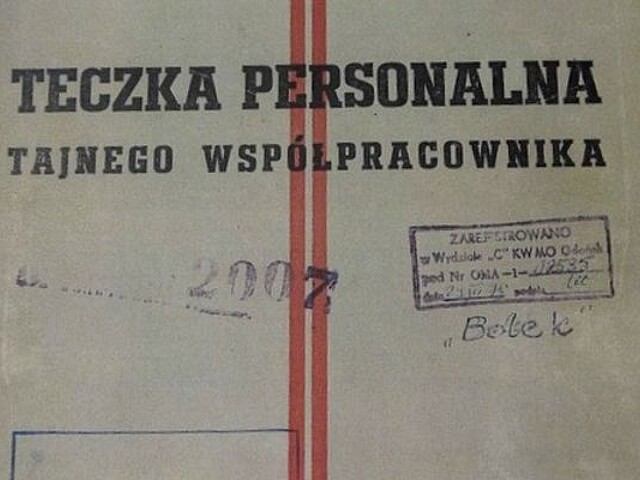
Piotr Osęka · 24. May 2016
The article puts a spotlight on recently discovered files about Lech Wałęsa’s collaboration with the state security forces in 1970 and the political debates that followed from this discovery. Showing how the right-wing PiS party seized this opportunity to bolster its narrative of the “treacherous” roundtable talks and of the post-1989 transition as engineered by the communist authorities, the article makes the point that once again, history is being instrumentalized by the party in power.
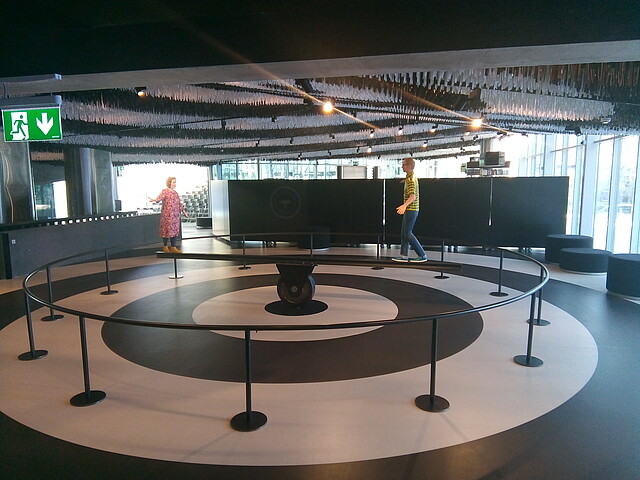
Heiko Pääbo and Eva-Clarita Pettai · 27. Mar 2019
A new generation of historians and curators have taken over the former Museum of Occupations in Tallinn, Estonia. They renamed the museum and opened a permanent exhibition built less on historical facts than on 'fragments of memory'. Technologically savvy, it challenges not only previous ways of representing Estonia's history of occupations, but also more traditional modes of presenting history in the museum. How this is done and whether it is convincing is discussed in this article.
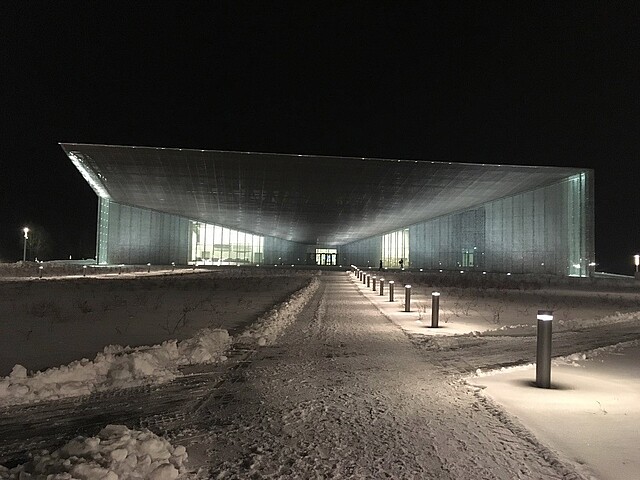
Kara Brown · 05. Jul 2018
The Estonian National Museum (ERM) is one of Europe’s youngest state museum buildings, and it has a (national) story to tell. The article analyses how through a deliberate use of space – from the historical significance of its site and its architectural design to the presentation of displays in the permanent exhibits – the museum projects an Estonian identity and serves the larger project of contemporary cultural production of the nation.
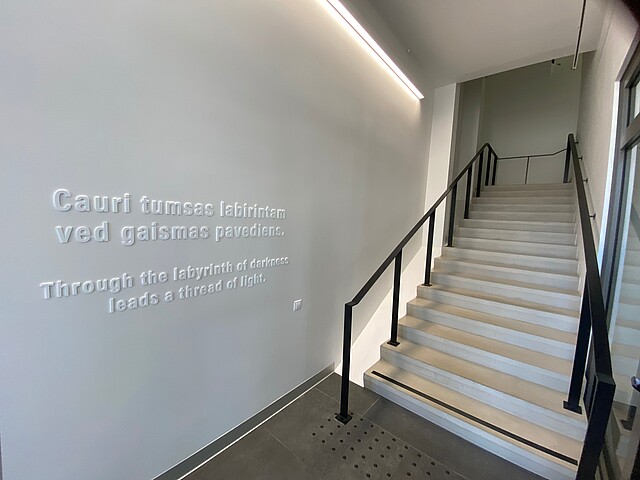
Katja Wezel · 17. Aug 2022
The new permanent exhibition at the Museum of the Occupation of Latvia in Old Town Riga has finally opened its doors to the public. The completely revamped exhibition covers altogether 11 'chapters' of Latvia's 20th-century history, from the interwar republic through Soviet and Nazi occupation all the way to re-independence. With its use of modern technology, the museum tells a narrative of suffering and resilience that tries to appeal to its visitors' emotions, running the risk of overwhelming them.
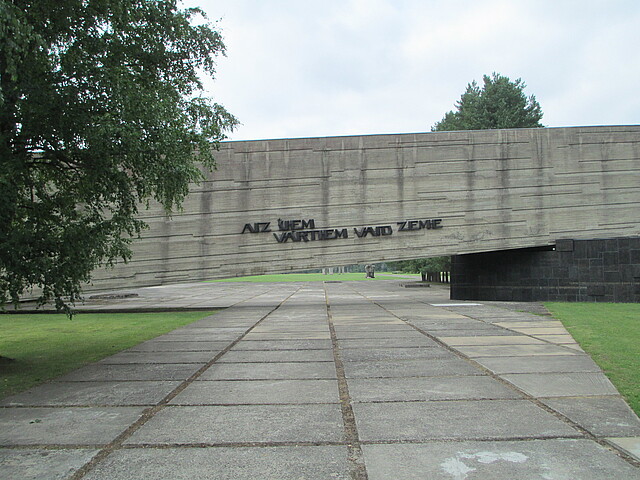
Paula Oppermann · 31. May 2018
When in February 2018 a new exhibition opened at the site of the former National Socialist 'Work Education Camp' Salaspils, its reception in the Latvian media was mixed. The history of the camp as well as its Soviet memorialisation are complex and have been frequently contested in Latvian society. The article reviews the new exhibition against this backdrop and asks how the curators present both the history and legacy of the place.
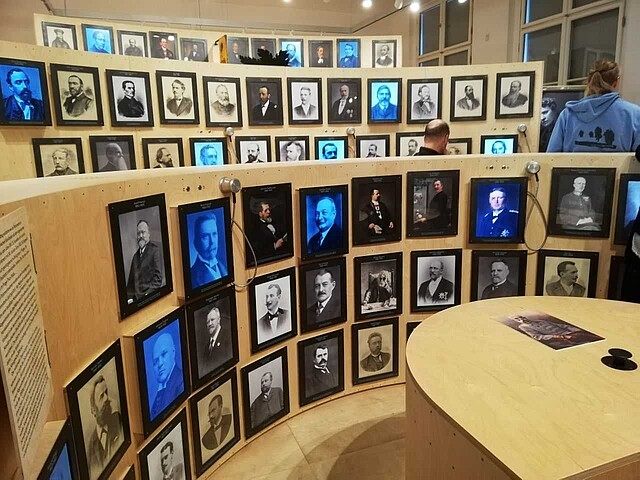
Patrick Metzler · 21. Dec 2022
The opening of this exhibition in the city museum of the small Czech town of Ústi nad Labem in November 2021 was as much a political milestone as it was a curatorial achievement: for the first time, the long and painful history of Germans and Czechs in Bohemia and Moravia is being displayed in form of a permanent exhibition. The curators succeed to approach the shared past with an openness towards the complex relational history and sometimes surprising technological interventions.
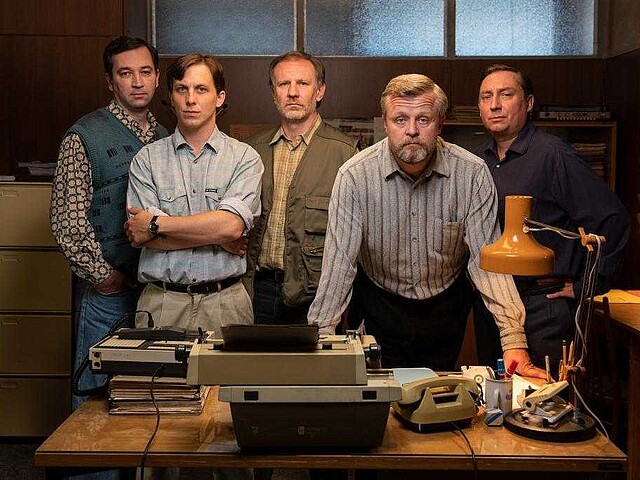
Veronika Pehe · 11. May 2022
A new prime-time show on Czech public television entitled 'Devadesátky' (‘The Nineties’) has turned out to be vastly popular and triggered a lively public debate. In six episodes, the series reconstructs the most notorious cases of violent, organized crime during the first post-socialist decade in the Czech Republic. The article reflects on the TV series’ popularity and what it tells us about public memory and narratives of the turbulent post-1989 period in Czech society.
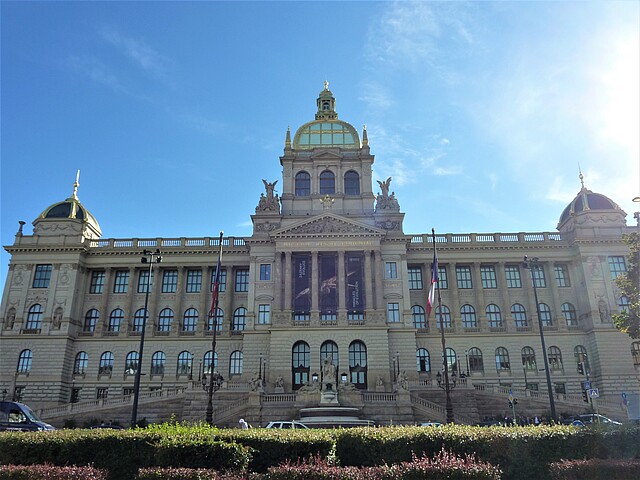
Karolína Bukovská · 25. Nov 2021
After twelve years of restauration and preparation, the new permanent exhibition on twentieth century Czech history finally opened its doors last July at the National Museum in Prague. The article provides a critical review of this exhibition, questioning its educational function and criticizing its rather narrow, national approach to Czech history as well as its narrative design.
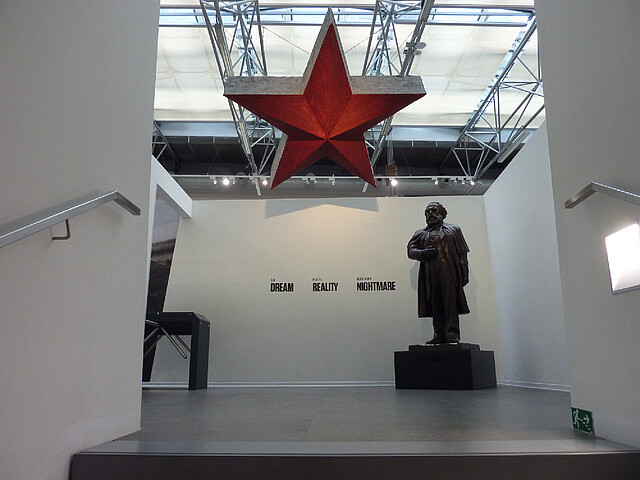
Karolína Bukovská · 17. Apr 2020
Why is it that one of the most visited museums in Prague, the Museum of Communism, is largely ignored by Czechs? Whose narrative is being presented here and who is being addressed? The article reviews the history and current permanent exhitition of this private museum and uses it to reflect on broader issues relating to the definition and functions of contemporary museums.
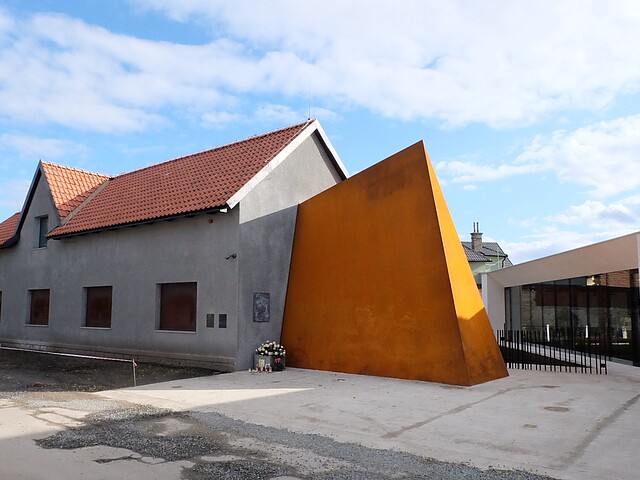
Jakub Jareš · 25. Feb 2020
In October 2019, a new memorial was opened in the former family house of Jan Palach in the small Czech town of Všetaty. With an impressive architecture and a small exhibition, the memorial commemorates the student who, in January 1969, set himself on fire to protest the communist regime. The article places its review of the memorial in the wider history of Palach commemoration in the Czech Republic.
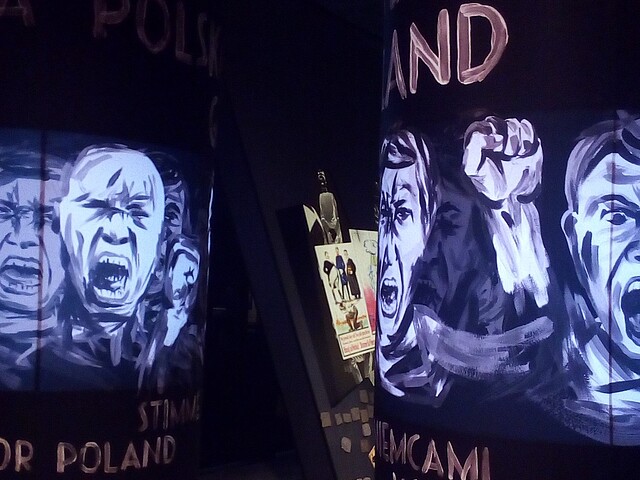
Ondřej Táborský · 21. Jun 2018
The complex history of Silesia with its shifting political, cultural and geographic boundaries and its current location spanning across three state borders, poses a challenge to anyone trying to define it. Associations of what constitutes ‘Silesian identity’ can vary considerably depending on the national context of the viewer. The article reviews three museums in Görlitz (Germany), Katowice (Poland) and Opava (Czech Republic) and evaluates how they present the region’s shared past to express Silesian identity.
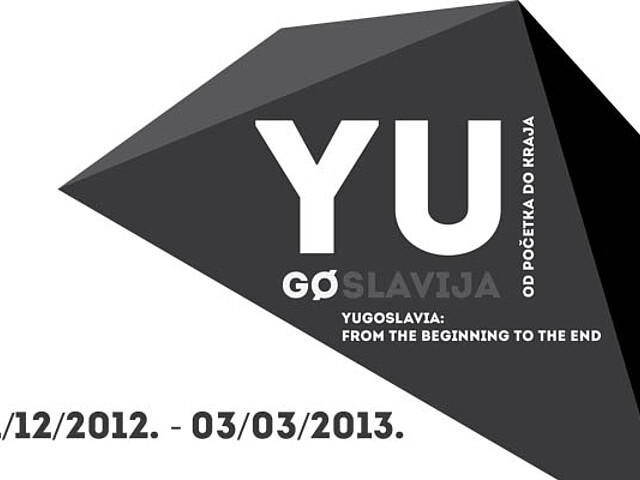
Ivana Dobrivojević · 23. Oct 2013
A new exhibition was opened in Belgrade on 1 December 2012, the ninety-fifth anniversary of the unification of South Slavs in The Kingdom of Serbs, Croats and Slovenes. This was a symbolic opening day. Journalists from all over the region flocked to the museum to cover the event. Curiously enough, in the politically divided societies of ex-Yugoslavia, it seemed that everyone could agree upon one thing: an exhibition about Yugoslav history and the very existence of the country was not only desirable, but also necessary.
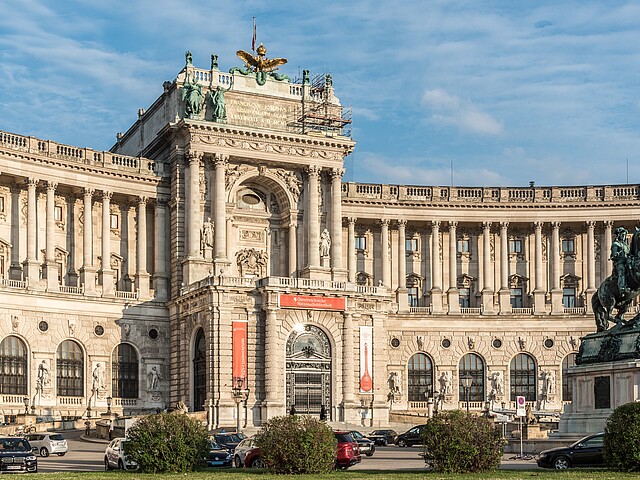
Andrea Brait · 16. Aug 2017
In 1996 the director of the Jewish Welcome Service in Austria, Leon Zelman, suggested for the first time to establish "a venue for vibrant encounters with history" in Austria. Yet the consensus-building and decision-making about such a House of History became a protracted process and its conclusion seems nowhere in sight. The article reconstructs this debate, which concerned not only the future location and space of the museum, but also the historical timespan of its future exhibition.
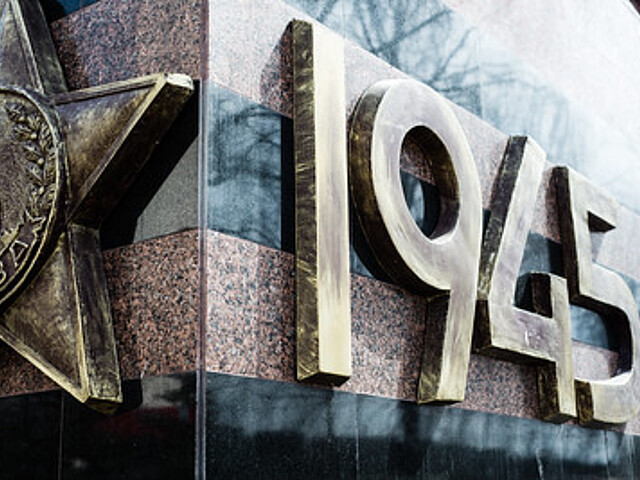
Laura Eckl and Jan C. Bever · 31. Aug 2020
75 years after Nazi Germany's defeat in 1945, different narratives of the war still mark public commemorations across the former Soviet Union, epitomized by two dates: 8 and 9 May. In Ukraine today, both are official commemorations days yet they are surrounded by contentious debates about history and identity. The article zooms in on this year's commemorations in Kharkiv discussing these debates and what they tell us about Ukraine’s evolving memory culture.
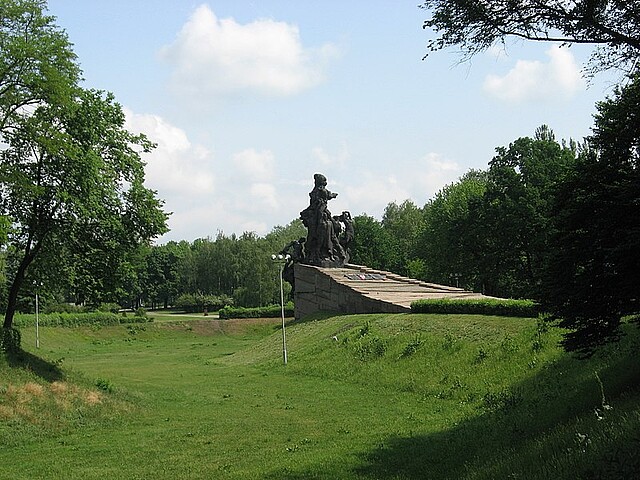
Alexandr Voronovici · 07. Aug 2018
When in 2016 the decision was made to create an international Babi Yar Holocaust Memorial Center in Kyiv, the plan received much support from government officials, including President Petro Poroshenko. Yet opposition emerged from both the Ukrainian Jewish community and nationally-minded Ukrainian historians and public institutions. The article provides the (memory) political context to the debates and critically assesses the arguments and underlying historical perceptions behind them.
![Author: Edgars Košovojs [CC BY-SA 3.0 (https://creativecommons.org/licenses/by-sa/3.0)]](/fileadmin/_processed_/e/8/csm_Stura_maja_7be8f53cfb.jpg)
Eva-Clarita Pettai · 22. Jul 2019
After years of political wrangling and public controversy, the Latvian parliament decided in fall 2018 to fully disclose the names of several thousand former KGB agents and informers. Ever since, the country has been plunged into a renewed confrontation with its recent past, all the more so as many well-known figures from Latvian cultural life appeared to have worked with the KGB. The article provides the political and legal background to the current debate and assesses the ongoing media engagement with the topic.
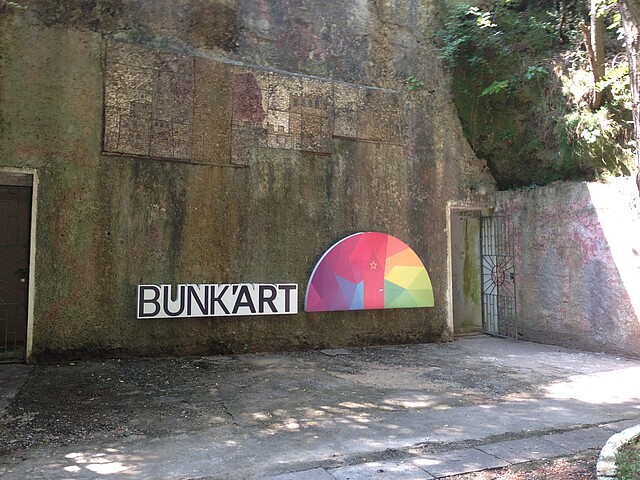
Raino Isto · 16. May 2017
On 22 November 2014 a multi-level underground bunker from the Cold War was opened in Tirana. Constructed during the country’s socialist period in the 1970s to house the heads of state in the event of a nuclear attack on the nation, the bunker today serves as a combination museum and art installation space and is one of the most fraught and complex attempts on the part of the Albanian government to come to terms with the nation’s recent history.
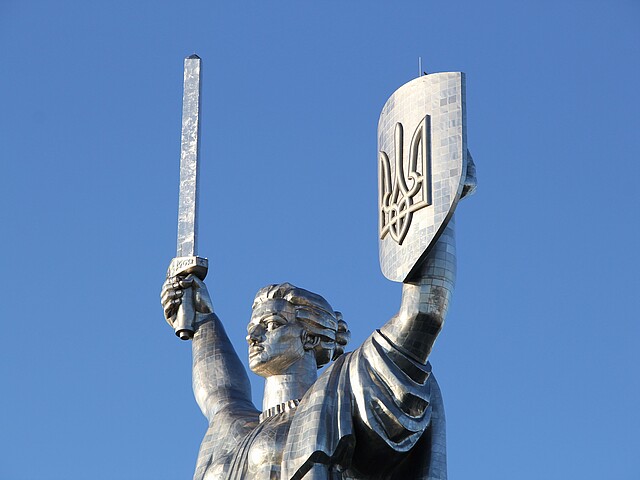
Viktoriia Nechyporuk · 13. Dec 2024
While there have been recurring debates about how to deal with the Soviet legacy since the country's independence, in 2015 decommunisation became a systemic imperative of Ukrainian state policy. Particularly in the case of monuments that are an essential part of the public space, redefinition became a strategy of decommunisation. The article examines the debates surrounding and the alteration of such a monument, the Motherland statue in Kyiv.
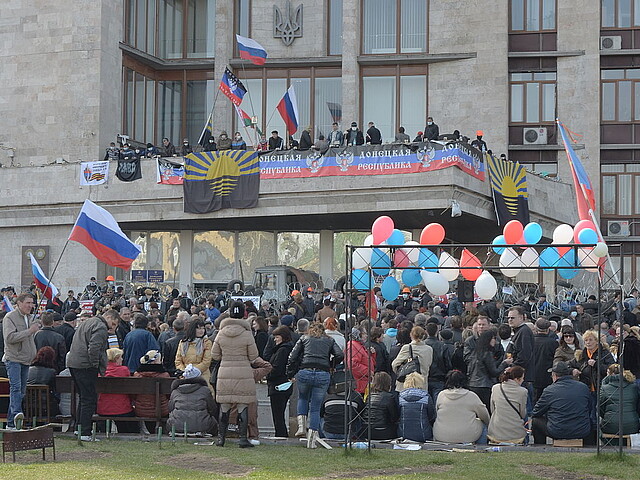
Alexandr Voronovici · 12. Aug 2023
What role do history and memory play in the war that Russia has launched against Ukraine, especially in the period prior to the full-scale invasion of the country in 2022? The article looks at the separatist regions of Luhansk and Donetsk since 2014 and outlines what historical narratives have been forged by separatist leaders and how they were strategically used to mobilize people and consolidate power.
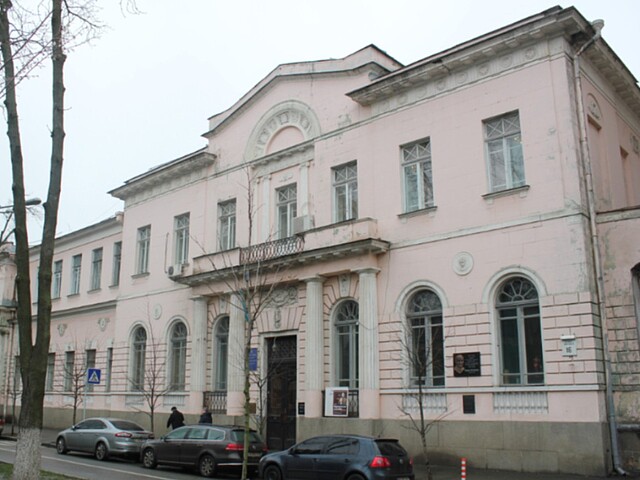
Andrii Nekoliak · 16. Jan 2020
In December 2019 Anton Drobovych, a relatively unknown historian, was appointed as new head of the Ukrainian Institute of National Remembrance. His appointment came as a surprise to many observers of Ukraine’s historical and public history scene and could mean a shift in the post-Euromaidan politics of memory in Ukraine. The article assesses first statements by Drobovych and discusses them against the backdrop of past memory-related policies and legislation.
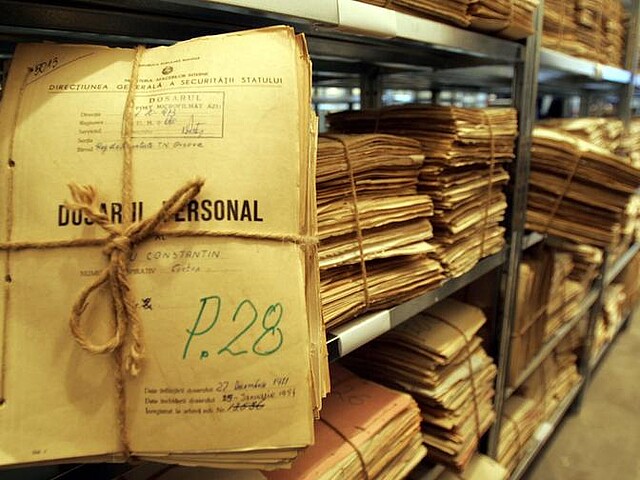
Lavinia Stan · 13. Dec 2019
On 20 September 2019, a Bucharest Court confirmed that Romanian former president Traian Băsescu had been a “collaborator of the Securitate” during the communist era. The court verdict has refueled public debates about Romania’s incomplete lustration of former Securitate agents from democratic political life. The article discusses the recent verdict and its relevance for understanding Romania’s past transitional justice process.
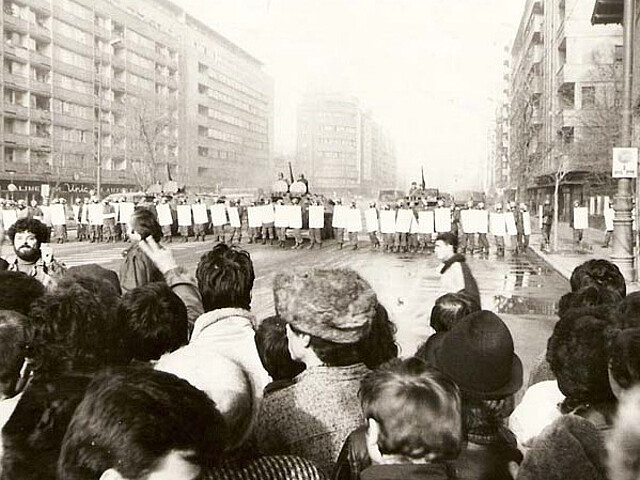
Raluca Grosescu · 17. Jan 2019
The bloody events of December 1989 remain a most contentiously debated issue of Romania’s recent history. Both historians and prosecutors have tried to shed light on what exactly happened and who was responsible for the violence that occurred after the dictator, Nicolae Ceauşescu, had been captured. The article discusses the most recent indictment against former president Ion Iliescu against the backdrop of previous trials and Romania’s broader efforts to come to terms with the revolution of 1989.
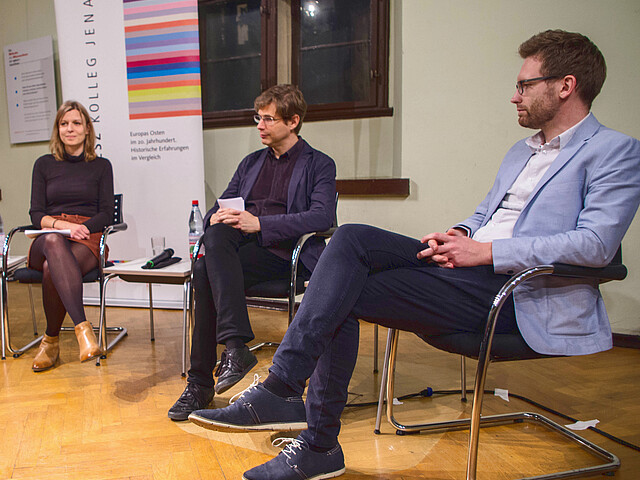
Gespräch · 30. Nov 2019
Unter dem Titel „In Auschwitz hat sich die Wirklichkeit entlarvt“ sprach am 10. November 2019 der Schriftsteller Daniel Kehlmann über Imre Kertész, der dieses Jahr 90 Jahre alt geworden wäre, Literatur und den Holocaust. Den Mitschnitt der Rede, sowie das anschließende Gespräch im Rathaussaal von Jena können Sie hier anhören.
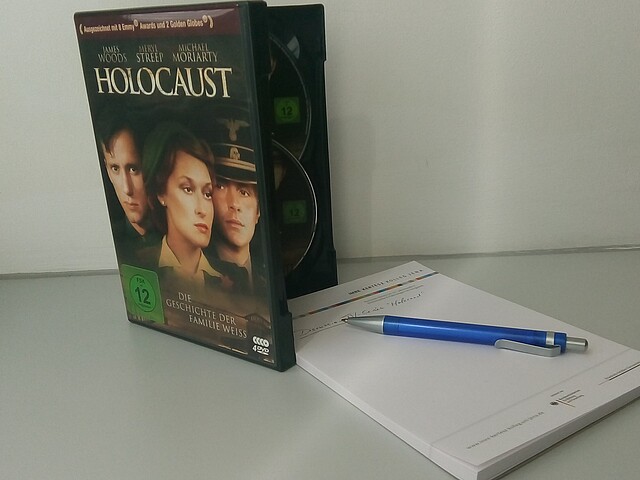
Gespräch · 17. May 2019
Thirty years after the American mini-series “Holocaust” was first shown on West-German television and started what has come to be seen as a major turn in German memory culture regarding the Holocaust, the Cultures of History Forum has invited five historians, experts of contemporary history of Central Europe, who had never seen the series before to watch all four episode and discuss it. This is the protocol of the discussion.
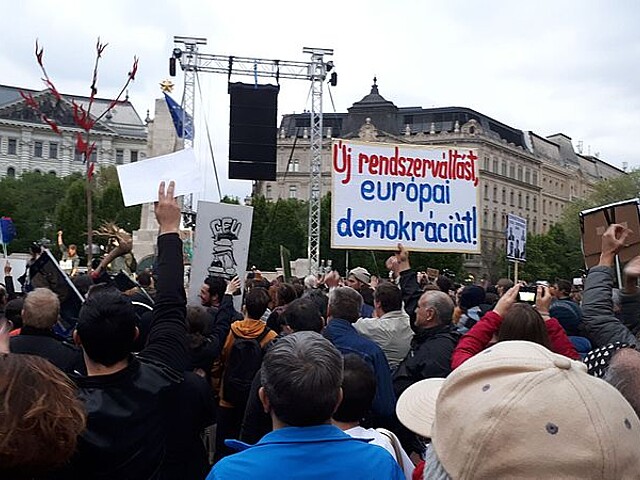
Eva-Clarita Pettai and Michal Kopeček · 12. Sep 2017
The 'Lex CEU' and the heavy anti-EU and anti-Soros campaigns that accompanied this legislative move against the Central European University (CEU) in Budapest in the spring of 2017 caused a major stir among both academics and European politicians. But what were its reverberations in the region? This special issue (FOCUS) of the state of academic freedom, civil society and liberal values in the countries that came out of communist dictatorships more than 25 years ago and to place the Hungarian ‘Lex CEU’ in a broader regional, historical and conceptual context.

Marta Bucholc · 12. Sep 2017
The 'Lex CEU' and the heavy anti-EU and anti-Soros campaigns that accompanied this legislative move against the Central European University (CEU) in Budapest in the spring of 2017 caused a major stir among both academics and European politicians. But what were its reverberations in the region? This special issue (FOCUS) of the state of academic freedom, civil society and liberal values in the countries that came out of communist dictatorships more than 25 years ago and to place the Hungarian ‘Lex CEU’ in a broader regional, historical and conceptual context. The present article reflects on the state of academic freedom in Poland.

Victoria Harms · 12. Sep 2017
As part of the special issue on 'Lex CEU', the present article revisits the history of the Central European University, its founding mission, and achievements. It surveys the Orbán regime’s policies since 2010, focusing on its education reforms and the CEU affair. The article thus contextualizes the 'Lex CEU' within recent national and international developments. The CEU affair is the latest battle in a 'Kulturkampf' between two mutually exclusive visions of Europe’s past, present, and future.

Elitza Stanoeva · 12. Sep 2017
As part of the special issue on 'Lex CEU', the present article argues, that the antiliberal tendencies in Bulgarian politics and society and apparent recourses to nationalism are not really a new phenomenon. Instead, the developments in the country over the last decade and more rather point to a stable trend towards increasing illiberalism that is accelerated by rampant elite corruption and an ever decreasing media independence.

Oana-Valentina Suciu · 12. Sep 2017
The events that surrounded the status of the Central European University (CEU) in Budapest at the beginning of April 2017 sparked vivid debates and public reactions in neighbouring Romania. While the academic world showed strong support for the CEU, only a few local government officials reacted similarly. As part of the special issue on 'Lex CEU', the article discusses these reactions from a comparative perspective, placing the case study within a wider framework of open society, liberal democratic values, academic freedom and human rights.

Isabela Kisic · 12. Sep 2017
As part of the special issue on 'Lex CEU', the article examines the broader situation of liberal democracy and civil society in Serbia today. Particular attention is paid to the recent anti-Soros campaigns and political attempts to thwart liberal-minded civil society, these incidents will be placed in a broader historical and present-day political context. Indeed, the events surrounding ‘Lex CEU’ were situated in a period of heightened political rhetoric in Serbia: the presidential elections.

Marie Heřmanová and Štěpán Drahokoupil · 12. Sep 2017
As part of the special issue on 'Lex CEU', the present article discusses the public reactions in the Czech Republic (from politicians, the media and academics) to the recent events in Hungary. It shows that these reactions were often closely connected to much broader questions regarding attitudes towards liberal values and the meaning of civil society. Taking a historical perspective, the dominant discourses on civil society are traced back to the early period of Czech democratization and two key ‘framers’ of public opinion: Václav Havel and Václav Klaus.

Ágnes Gagyi · 12. Sep 2017
As part of the special issue on 'Lex CEU', the article discusses the developments in Hungary and the issue of "illiberal backsliding" under Viktor Orbáns government against the backdrop of a broader crisis of liberal democracy around the world. Viewed in such a wider context, local specificities of post-socialist transitions do not seem to provide a full explanation for this phenomenon. Indeed, making sense of the present crisis may demand that we wholly revise the post-Cold War narrative of post-socialist democratization itself.

Pauls Raudseps · 12. Sep 2017
As part of a special issue on 'Lex CEU', this article discusses the processes of effective marginalization of ‘liberalism’ as an openly espoused political conviction in the Latvian public sphere. It considers the interaction of four factors: nationalism, the politics of privatization, the self-interest of some powerful Latvian politicians, and, after the turn of the millennium, the increasing influence of parties and organizations espousing 'family values'.
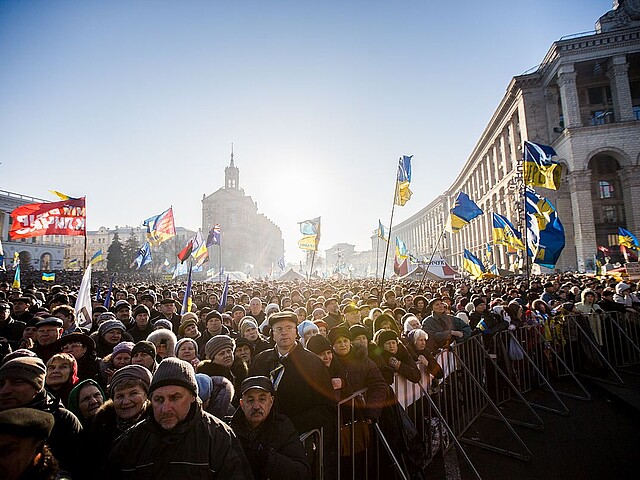
Dorothea Warneck · 11. Apr 2015
The situation in Ukraine is the subject of an intense discussion in the public sphere and the media across Europe. But what do we know about how our neighbouring countries are reflecting on the crisis, its historical background and its meaning for the relationship between our countries, Ukraine, Russia and the European Union? During 2014 and 2015 the Cultures of History Forum asked historians and sociologists from more than 15 European countries, the US, Israel and Turkey to reflect on the media coverage and public debates regarding the Ukrainian crisis in their countries.

Aliaksei Lastouski · 07. May 2014
The situation in Ukraine is the subject of an intense discussion in the public sphere and the media across Europe. But what do we know about how our neighbouring countries are reflecting on the crisis, its historical background and its meaning for the relationship between our countries, Ukraine, Russia and the European Union? During 2014 and 2015 the Cultures of History Forum asked historians and sociologists from more than 15 European countries, the US, Israel and Turkey to reflect on the media coverage and public debates regarding the Ukrainian crisis in their countries. This article focuses on Belarus.

Nikolai Vukov · 09. Sep 2014
The situation in Ukraine is the subject of an intense discussion in the public sphere and the media across Europe. But what do we know about how our neighbouring countries are reflecting on the crisis, its historical background and its meaning for the relationship between our countries, Ukraine, Russia and the European Union? During 2014 and 2015 the Cultures of History Forum asked historians and sociologists from more than 15 European countries, the US, Israel and Turkey to reflect on the media coverage and public debates regarding the Ukrainian crisis in their countries. This article focuses on Bulgaria.

Stanislav Holubec · 14. May 2014
The situation in Ukraine is the subject of an intense discussion in the public sphere and the media across Europe. But what do we know about how our neighbouring countries are reflecting on the crisis, its historical background and its meaning for the relationship between our countries, Ukraine, Russia and the European Union? During 2014 and 2015 the Cultures of History Forum asked historians and sociologists from more than 15 European countries, the US, Israel and Turkey to reflect on the media coverage and public debates regarding the Ukrainian crisis in their countries. This article focuses on the Czech Republic.

Maria Mälksoo · 30. Apr 2014
The situation in Ukraine is the subject of an intense discussion in the public sphere and the media across Europe. But what do we know about how our neighbouring countries are reflecting on the crisis, its historical background and its meaning for the relationship between our countries, Ukraine, Russia and the European Union? During 2014 and 2015 the Cultures of History Forum asked historians and sociologists from more than 15 European countries, the US, Israel and Turkey to reflect on the media coverage and public debates regarding the Ukrainian crisis in their countries. This article focuses on Estonia.

Kai Struve · 14. May 2014
The situation in Ukraine is the subject of an intense discussion in the public sphere and the media across Europe. But what do we know about how our neighbouring countries are reflecting on the crisis, its historical background and its meaning for the relationship between our countries, Ukraine, Russia and the European Union? During 2014 and 2015 the Cultures of History Forum asked historians and sociologists from more than 15 European countries, the US, Israel and Turkey to reflect on the media coverage and public debates regarding the Ukrainian crisis in their countries. This article focuses on Germany.

Péter Apor · 30. Apr 2014
The situation in Ukraine is the subject of an intense discussion in the public sphere and the media across Europe. But what do we know about how our neighbouring countries are reflecting on the crisis, its historical background and its meaning for the relationship between our countries, Ukraine, Russia and the European Union? During 2014 and 2015 the Cultures of History Forum asked historians and sociologists from more than 15 European countries, the US, Israel and Turkey to reflect on the media coverage and public debates regarding the Ukrainian crisis in their countries. This article focuses on Hungary.

Felix Ackermann · 30. Apr 2014
The situation in Ukraine is the subject of an intense discussion in the public sphere and the media across Europe. But what do we know about how our neighbouring countries are reflecting on the crisis, its historical background and its meaning for the relationship between our countries, Ukraine, Russia and the European Union? During 2014 and 2015 the Cultures of History Forum asked historians and sociologists from more than 15 European countries, the US, Israel and Turkey to reflect on the media coverage and public debates regarding the Ukrainian crisis in their countries. This article focuses on Lithuania.

Diana Joseph · 11. Jun 2014
The situation in Ukraine is the subject of an intense discussion in the public sphere and the media across Europe. But what do we know about how our neighbouring countries are reflecting on the crisis, its historical background and its meaning for the relationship between our countries, Ukraine, Russia and the European Union? During 2014 and 2015 the Cultures of History Forum asked historians and sociologists from more than 15 European countries, the US, Israel and Turkey to reflect on the media coverage and public debates regarding the Ukrainian crisis in their countries. This article focuses on Moldovan media.

Diana Joseph · 21. May 2014
The situation in Ukraine is the subject of an intense discussion in the public sphere and the media across Europe. But what do we know about how our neighbouring countries are reflecting on the crisis, its historical background and its meaning for the relationship between our countries, Ukraine, Russia and the European Union? During 2014 and 2015 the Cultures of History Forum asked historians and sociologists from more than 15 European countries, the US, Israel and Turkey to reflect on the media coverage and public debates regarding the Ukrainian crisis in their countries. This article focuses on Moldova with a special focus on Transnistria.

Ilse Josepha Lazaroms · 21. Sep 2014
The situation in Ukraine is the subject of an intense discussion in the public sphere and the media across Europe. But what do we know about how our neighbouring countries are reflecting on the crisis, its historical background and its meaning for the relationship between our countries, Ukraine, Russia and the European Union? During 2014 and 2015 the Cultures of History Forum asked historians and sociologists from more than 15 European countries, the US, Israel and Turkey to reflect on the media coverage and public debates regarding the Ukrainian crisis in their countries. This article focuses on the Netherlands.

Łukasz Sommer and Joanna Wawrzyniak · 02. Jun 2014
The situation in Ukraine is the subject of an intense discussion in the public sphere and the media across Europe. But what do we know about how our neighbouring countries are reflecting on the crisis, its historical background and its meaning for the relationship between our countries, Ukraine, Russia and the European Union? During 2014 and 2015 the Cultures of History Forum asked historians and sociologists from more than 15 European countries, the US, Israel and Turkey to reflect on the media coverage and public debates regarding the Ukrainian crisis in their countries. This article focuses on Poland.

Bogdan C. Iacob · 07. May 2014
The situation in Ukraine is the subject of an intense discussion in the public sphere and the media across Europe. But what do we know about how our neighbouring countries are reflecting on the crisis, its historical background and its meaning for the relationship between our countries, Ukraine, Russia and the European Union? During 2014 and 2015 the Cultures of History Forum asked historians and sociologists from more than 15 European countries, the US, Israel and Turkey to reflect on the media coverage and public debates regarding the Ukrainian crisis in their countries. This article focuses on Romania.

Alexander Graef · 11. Apr 2015
The situation in Ukraine is the subject of an intense discussion in the public sphere and the media across Europe. But what do we know about how our neighbouring countries are reflecting on the crisis, its historical background and its meaning for the relationship between our countries, Ukraine, Russia and the European Union? During 2014 and 2015 the Cultures of History Forum asked historians and sociologists from more than 15 European countries, the US, Israel and Turkey to reflect on the media coverage and public debates regarding the Ukrainian crisis in their countries. The present brief report describes the main fault lines of Russian media discourse on the political crisis in Ukraine between late November 2013 and April 2014.

Ivana Dobrivojević · 30. Apr 2014
The situation in Ukraine is the subject of an intense discussion in the public sphere and the media across Europe. But what do we know about how our neighbouring countries are reflecting on the crisis, its historical background and its meaning for the relationship between our countries, Ukraine, Russia and the European Union? During 2014 and 2015 the Cultures of History Forum asked historians and sociologists from more than 15 European countries, the US, Israel and Turkey to reflect on the media coverage and public debates regarding the Ukrainian crisis in their countries. The present brief report describes the main fault lines of Russian media discourse on the political crisis in Ukraine between late November 2013 and April 2014. This present paper is based on information and articles published in the four most prominent daily newspapers ion Serbia: Politika, Danas, Vecernje novosti, Blic, and the weekly Vreme.

Berk Esen · 09. Sep 2014
The situation in Ukraine is the subject of an intense discussion in the public sphere and the media across Europe. But what do we know about how our neighbouring countries are reflecting on the crisis, its historical background and its meaning for the relationship between our countries, Ukraine, Russia and the European Union? During 2014 and 2015 the Cultures of History Forum asked historians and sociologists from more than 15 European countries, the US, Israel and Turkey to reflect on the media coverage and public debates regarding the Ukrainian crisis in their countries. This article focuses on Turkey.

Natalya Ryabinska · 10. Apr 2015
The situation in Ukraine is the subject of an intense discussion in the public sphere and the media across Europe. But what do we know about how our neighbouring countries are reflecting on the crisis, its historical background and its meaning for the relationship between our countries, Ukraine, Russia and the European Union? During 2014 and 2015 the Cultures of History Forum asked historians and sociologists from more than 15 European countries, the US, Israel and Turkey to reflect on the media coverage and public debates regarding the Ukrainian crisis in their countries. This paper is a short outline of the coverage of the Euromaidan protests by Ukrainian television and the Internet in the period from November 2013 to spring 2014.

Brian Horowitz · 09. May 2014
The situation in Ukraine is the subject of an intense discussion in the public sphere and the media across Europe. But what do we know about how our neighbouring countries are reflecting on the crisis, its historical background and its meaning for the relationship between our countries, Ukraine, Russia and the European Union? During 2014 and 2015 the Cultures of History Forum asked historians and sociologists from more than 15 European countries, the US, Israel and Turkey to reflect on the media coverage and public debates regarding the Ukrainian crisis in their countries. This paper is a short outline of the coverage of the Euromaidan protests by Ukrainian television and the Internet in the period from November 2013 to spring 2014. The present article focuses on the medai coverage of these events in major US intellectual news outlets, the New York Times, New Yorker, and the New York Review of Books.
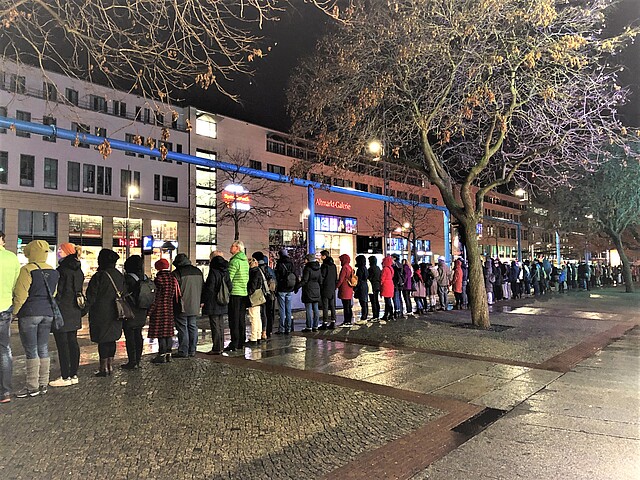
Sabine Volk · 11. Mar 2020
On 13 February 2020, citizens of the city of Dresden commemorated the 75th anniversary of their city's destruction by Allied bombing attacks in 1945. Subject to great contestation in politics and civil society, political protest and counter-protest also marked this year’s anniversary. Based on ethnographic fieldwork in Dresden before, during and after 13 February 2020, the article reviews the public events and discusses the actors and narratives that shape Dresden’s most important remembrance day.
![Author: Christian Michelides [CC BY-SA 4.0 (https://creativecommons.org/licenses/by-sa/4.0)]](/fileadmin/_processed_/4/5/csm_KZ_Sered_Holocaust-Museum_7_rzd_d7c9618f4f.jpg)
Monika Vrzgulová · 16. May 2019
The Sered' Holocaust Memorial Museum is the only one of its kind in Slovakia. Located on the original site of the former labour and concentration camp, it tells the story of persecution, exploitation and murder of Slovak Jews during the war. While recognizing the difficulties of presenting the history of the Holocaust in Slovakia, this review reveals many shortcomings in the current permanent exhibition, which misses the chance of truly informing its visitors and raising critical historical awareness.
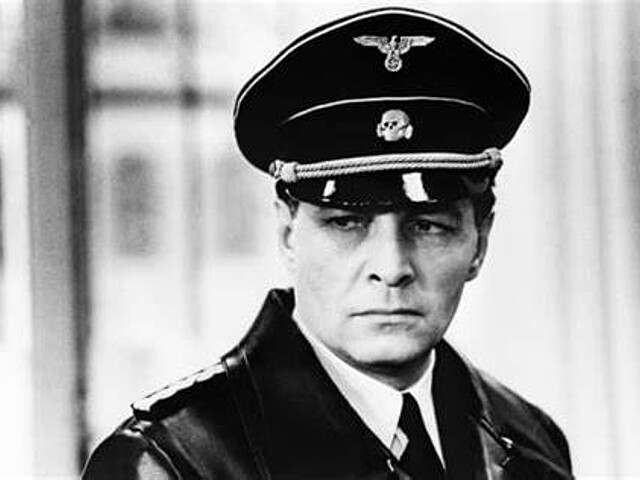
Violeta Davoliūtė · 01. Jun 2022
While Putin’s plan to launch a full-scale invasion of Ukraine has been widely understood as irrational, it is entirely consistent with the “anti-fascist” discourse of his regime. The article discusses how this discourse draws on the political and cultural neo-traditionalism crystalized in 1970s Soviet TV serials that vilified the West, defined a new Soviet war hero, and nurtured a cryptic fascination with Nazism.
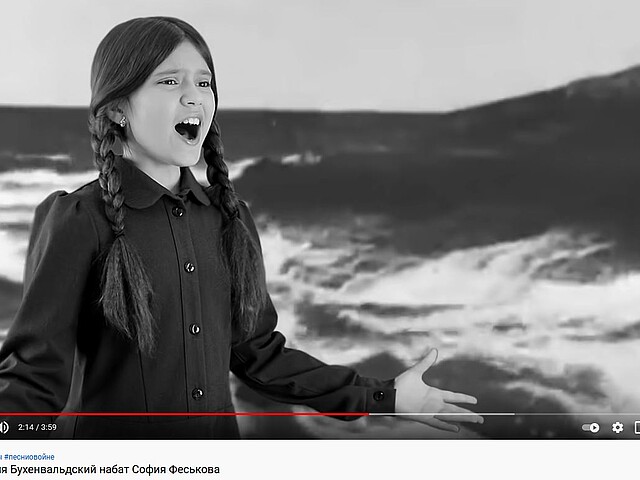
Gero Fedtke · 27. Aug 2021
For many decades Soviet and post-Soviet collective memory of the Second World War has been closely tied to the song 'Bukhenval'dskii nabat' (Alarm Bell of Buchenwald), performed at both official and private commemorations across the former Soviet Union. The article traces the origins of the song and critically discusses the various transformations it undertook from being an anti-nuclear peace song to becoming a central element of the antifascist 'Great Patriotic War'-memory.
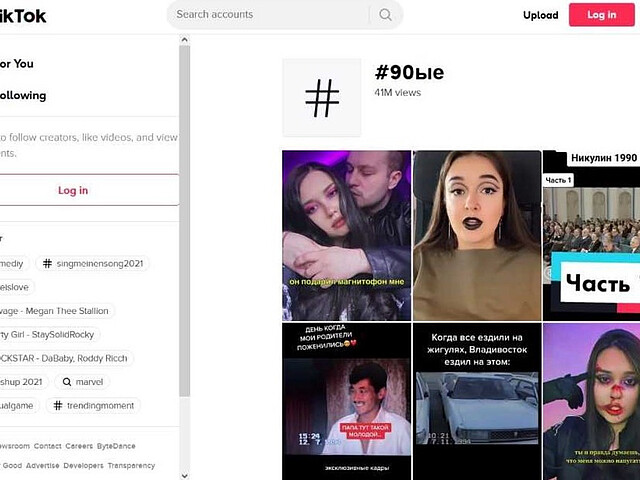
Mykola Makhortykh · 28. Jun 2021
Thirty years have passed since the dissolution of the Soviet Union. In Russia's public sphere today, the decade that followed is remembered with ambivalence while politically, negative narratives of the 'rowdy nineties' dominate. The article examines how the 1990s are being represented on social media platforms, in particular on TikTok and Instagram, and to what extent the platform-generated grassroot memory practices differ from, or even oppose the official narrative about this period.
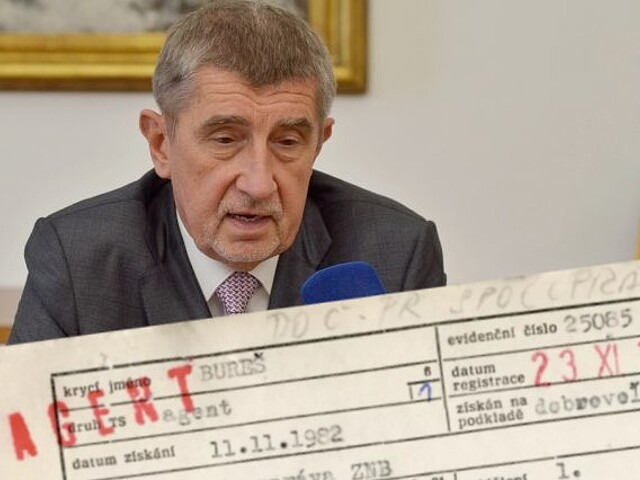
Veronika Pehe · 21. Jul 2021
In April 2021 a Czech researcher stumbled over a file card that identified Prime Minister Andrej Babis as a former agent of the StB. This new piece of evidence, however, was barely discussed in the Czech public. The article tries to explain this non-existing debate about the Prime Minister’s StB past and finds answers in the changing significance of anti-communism as a driving force of Czech public debate and memory politics.
